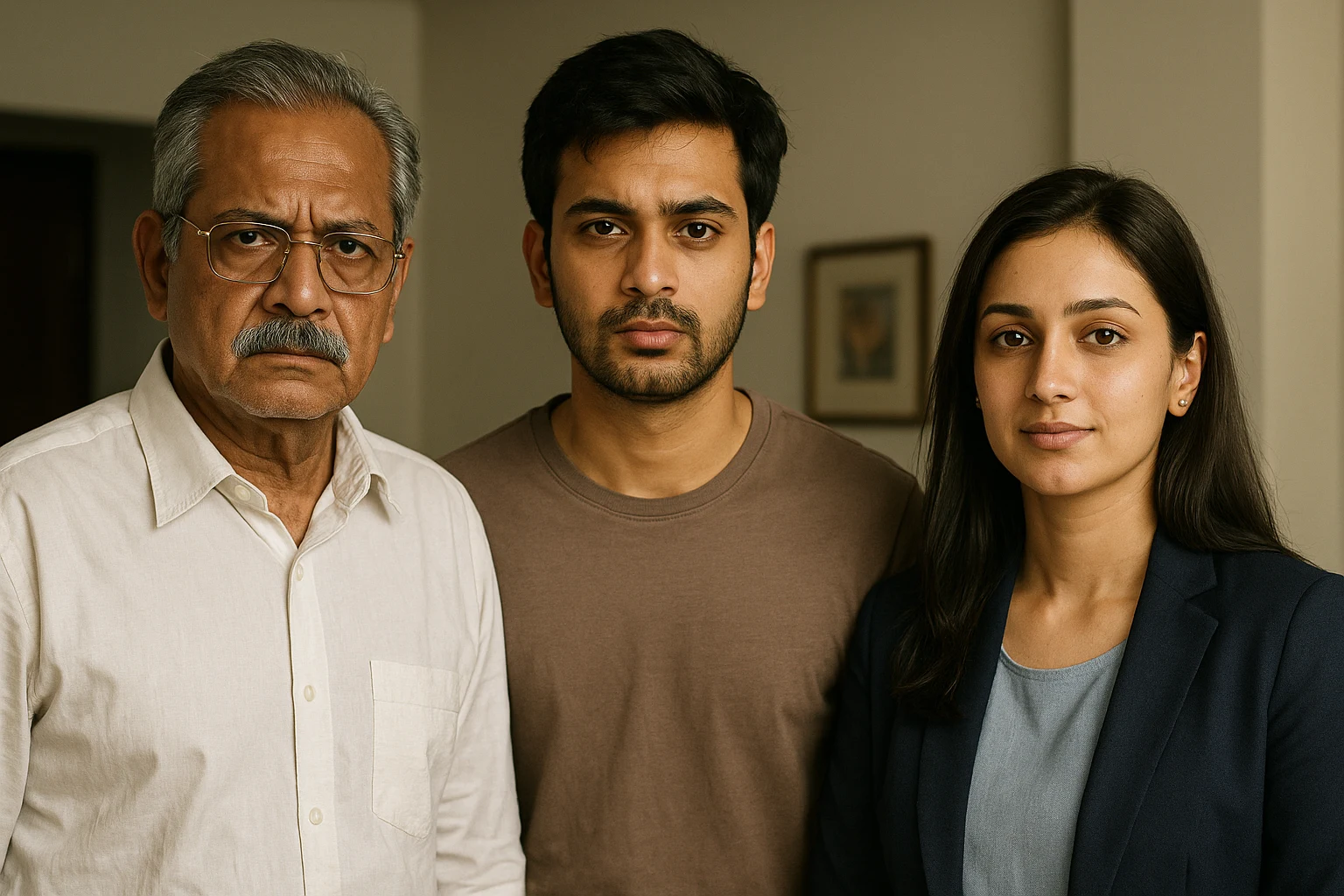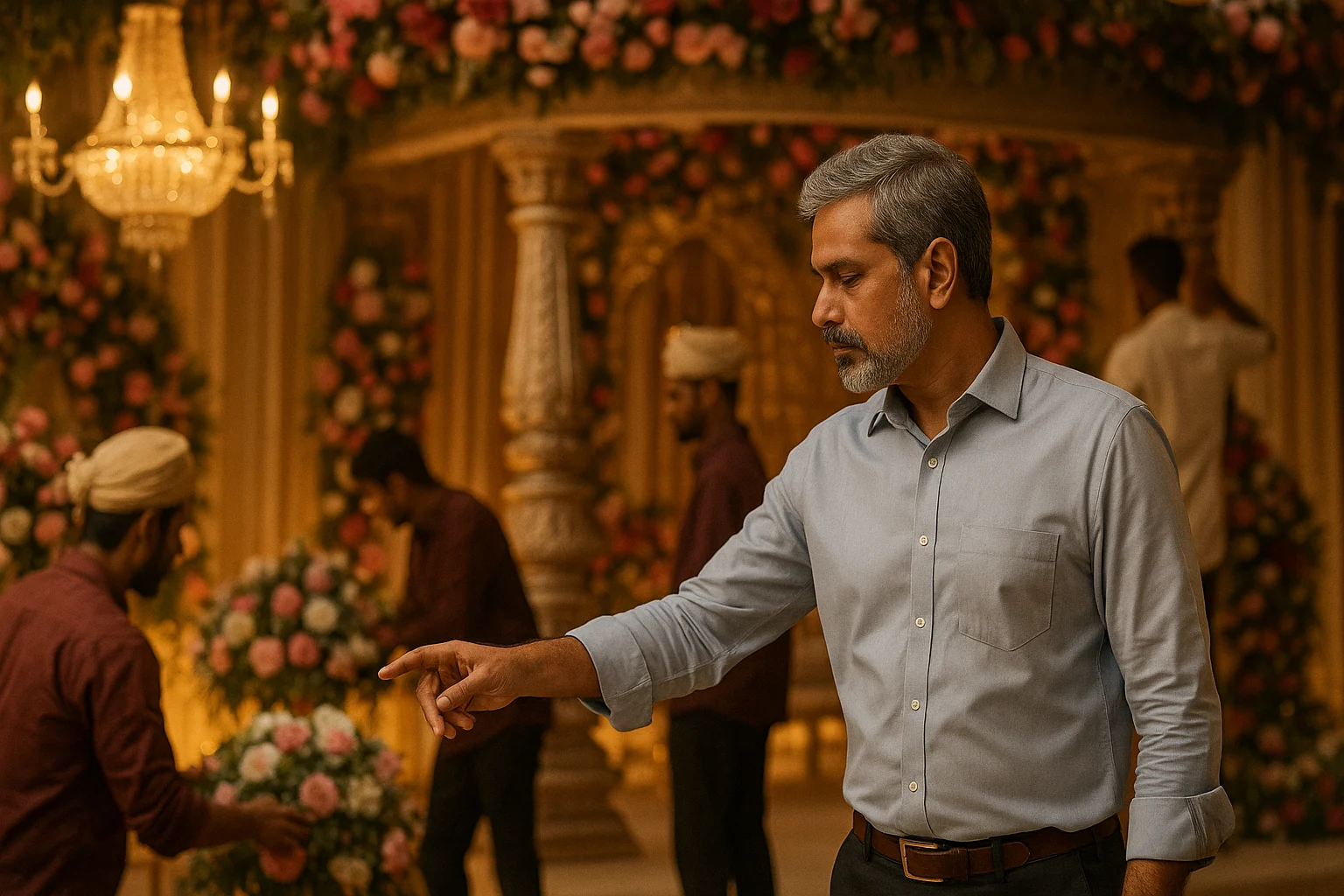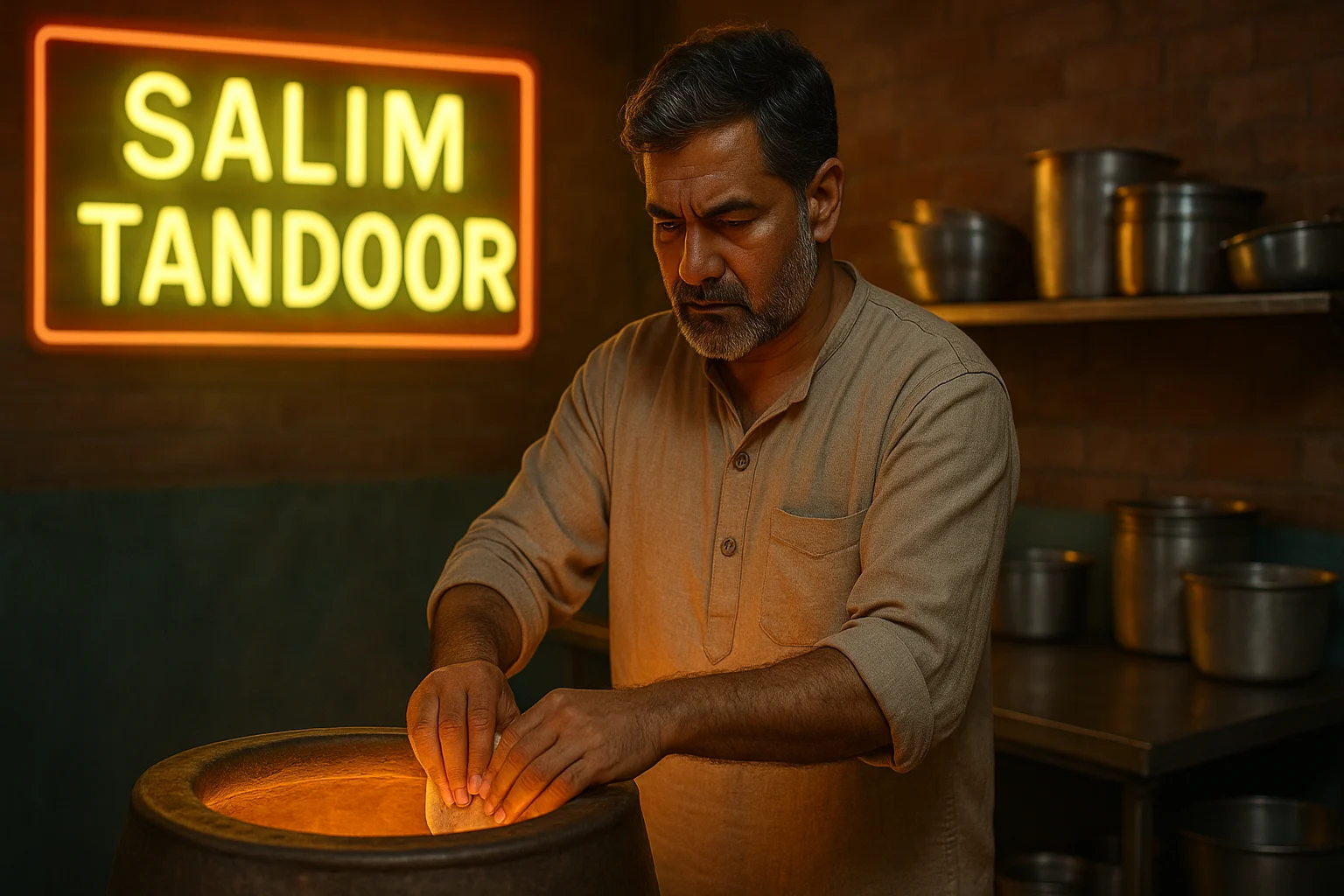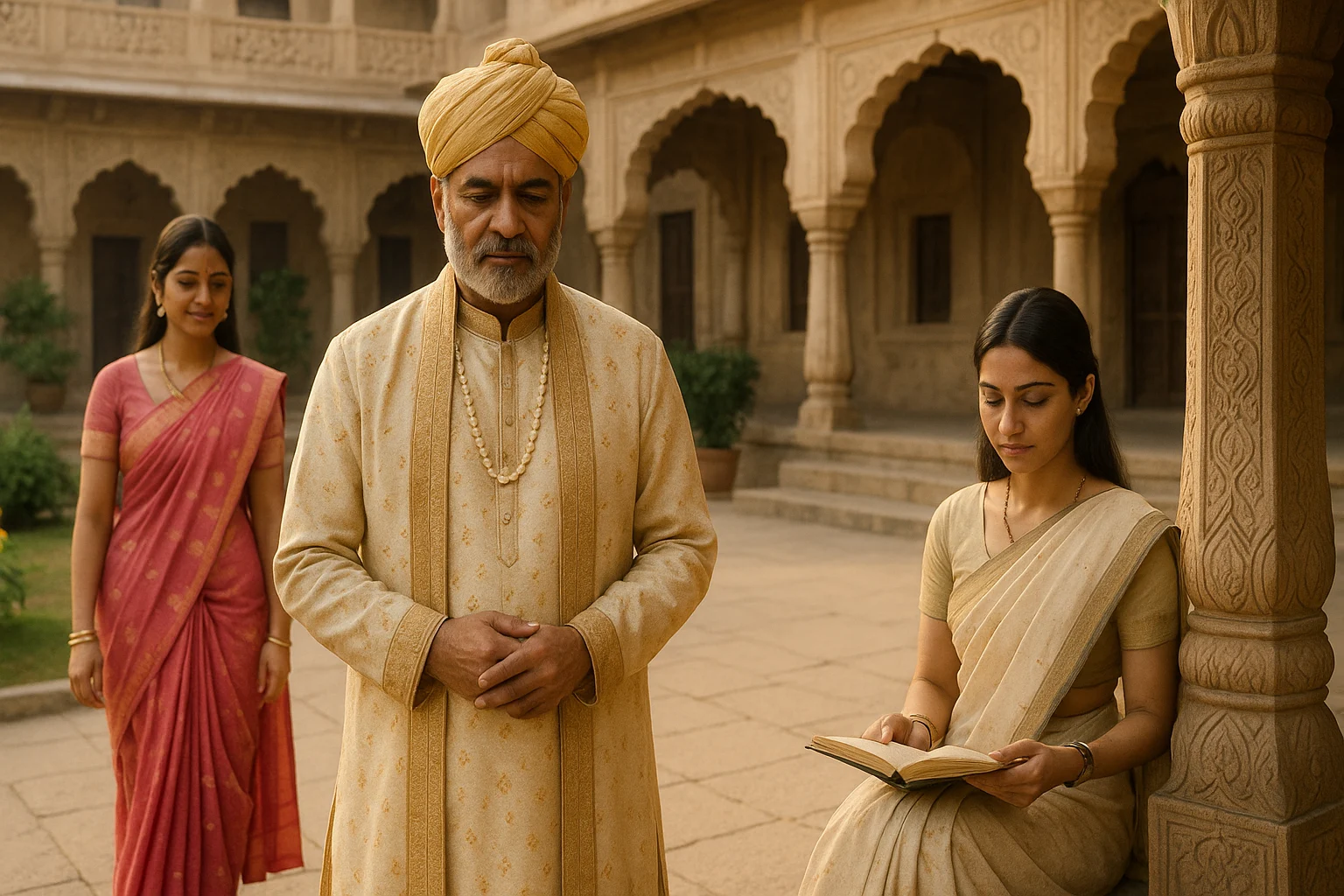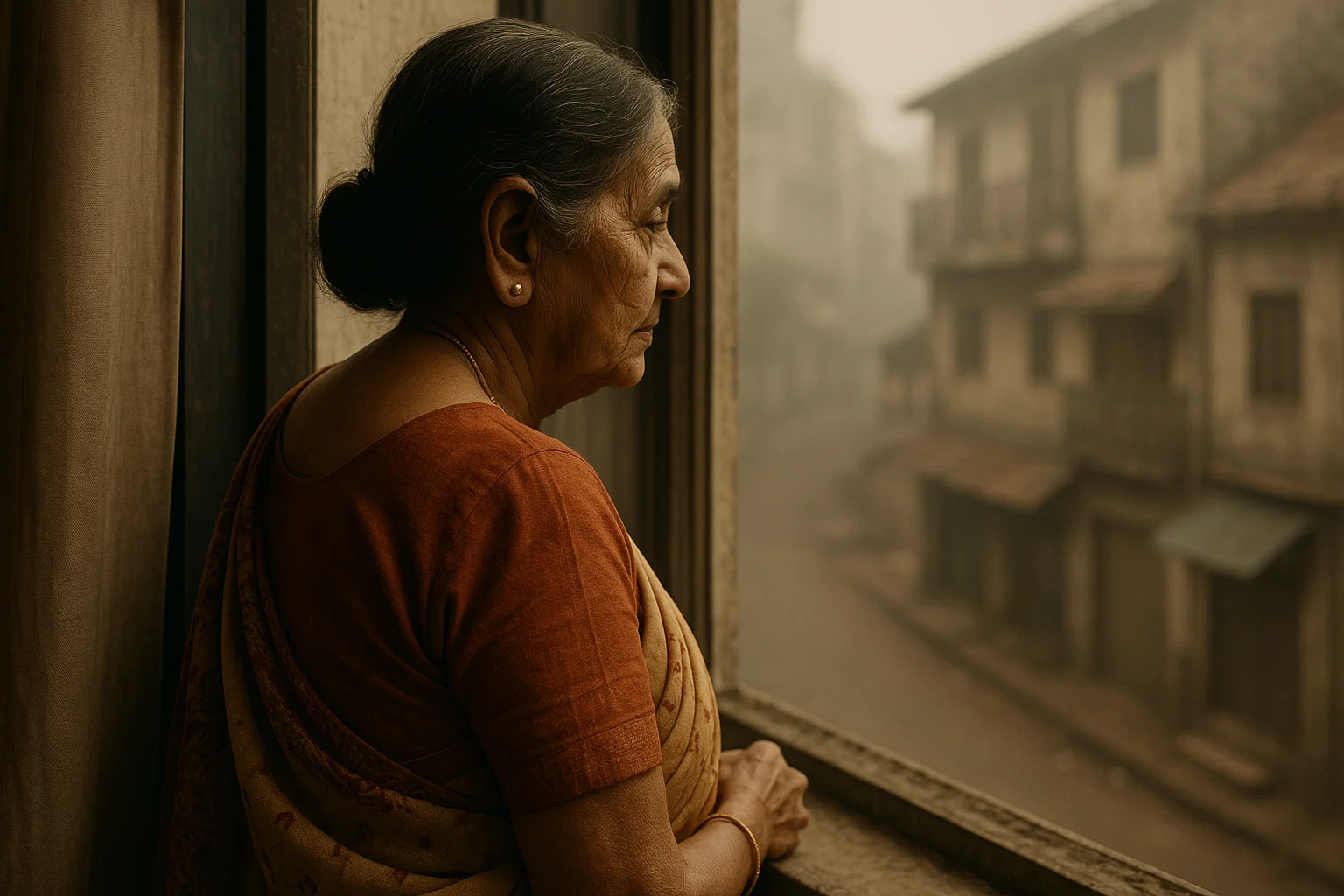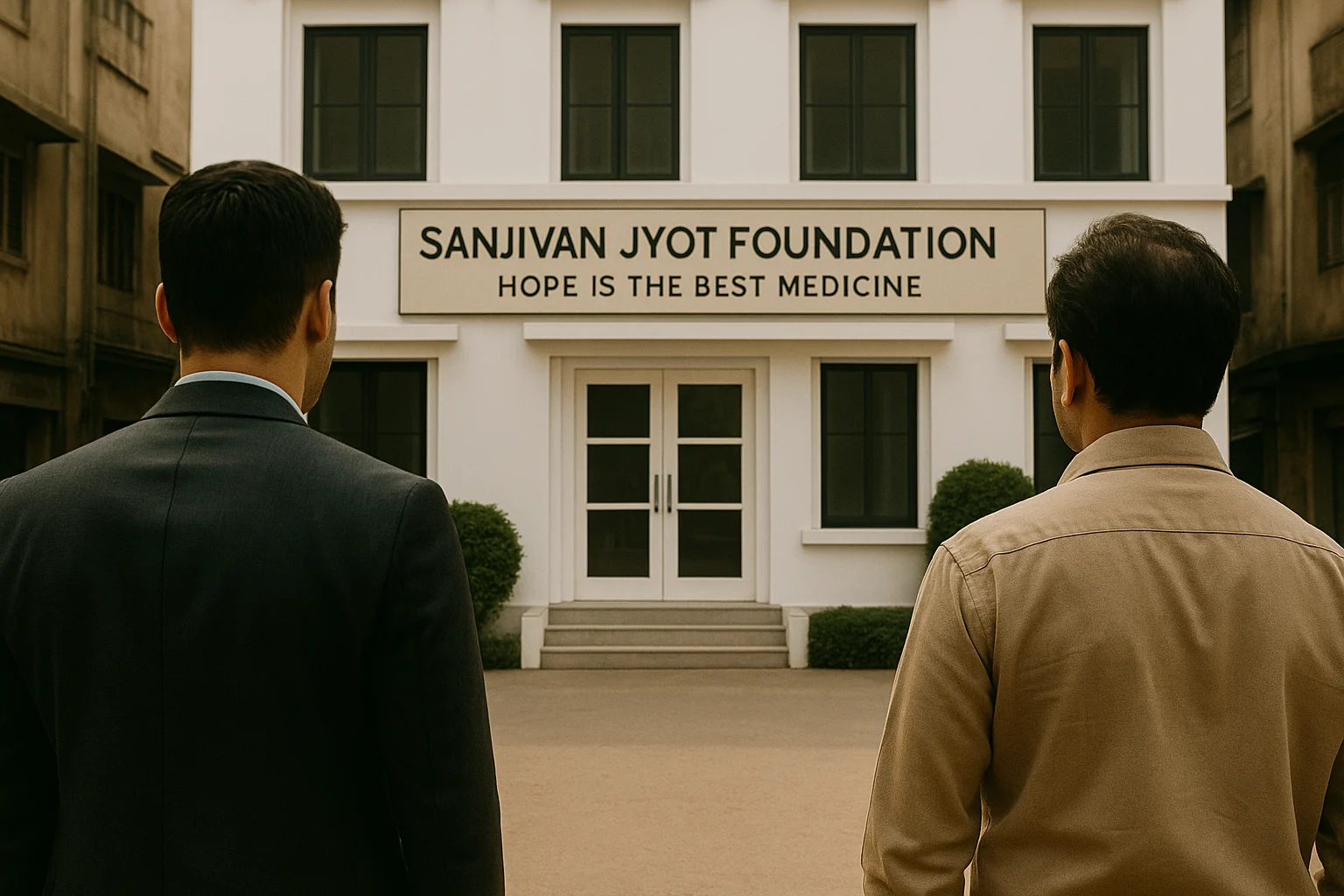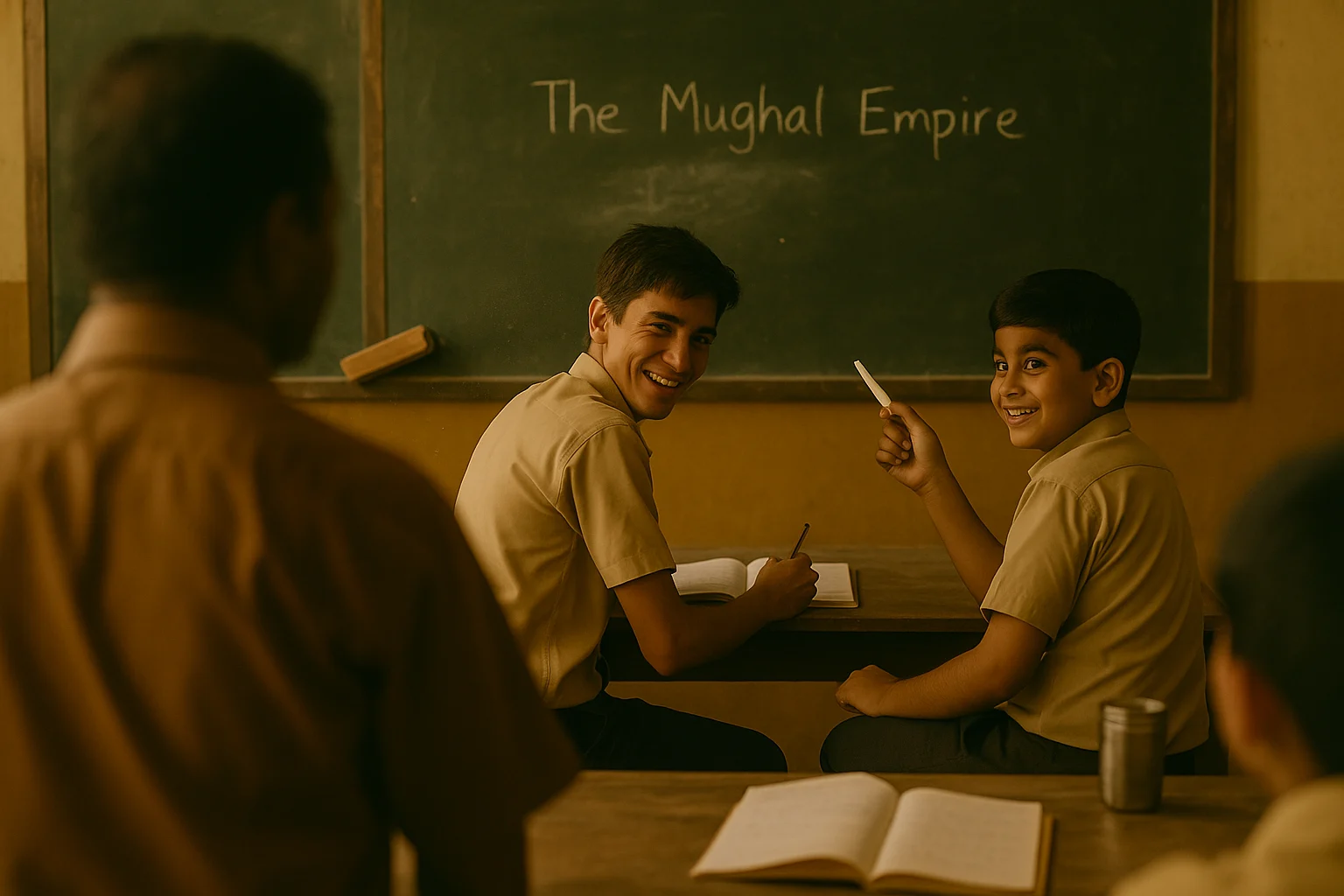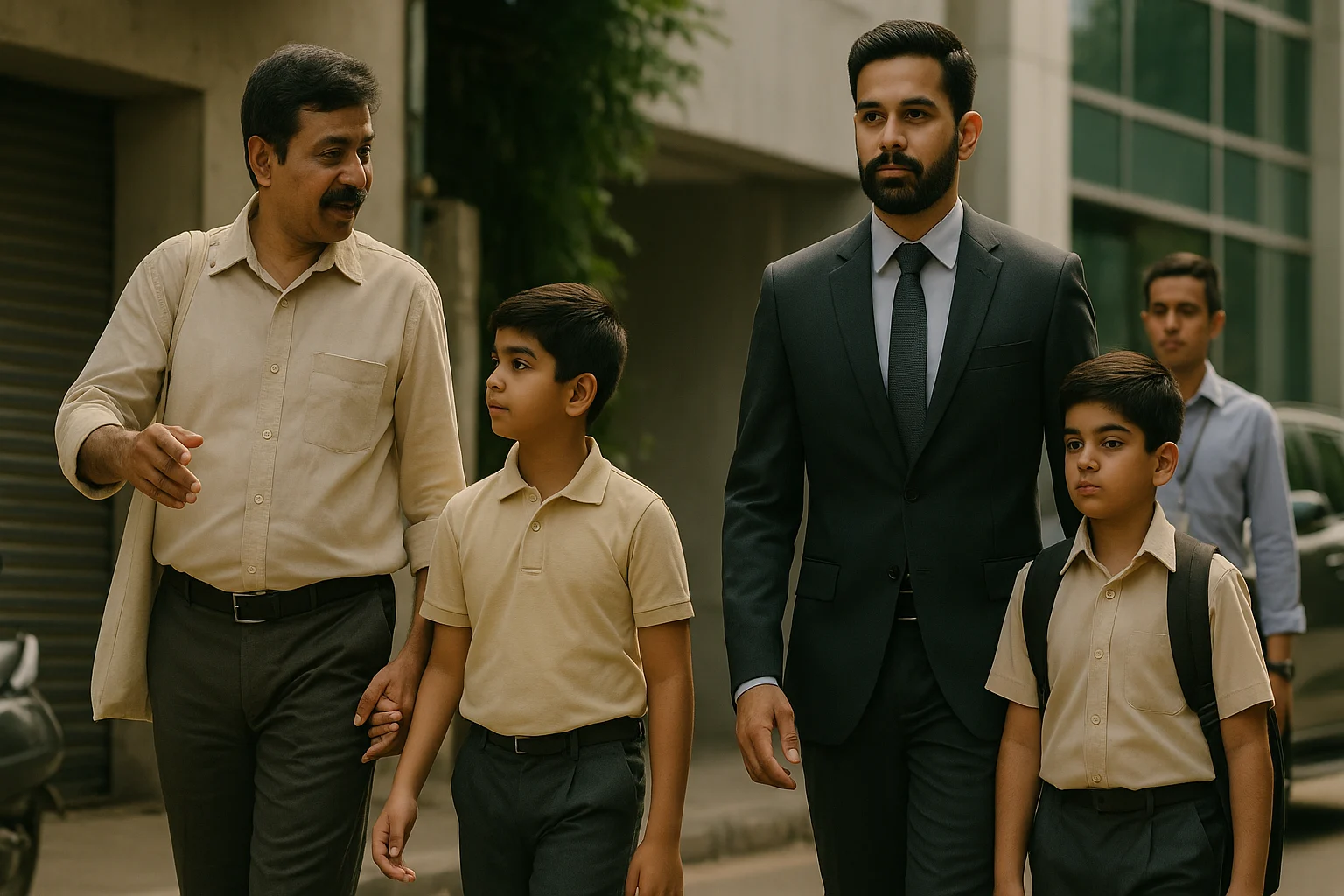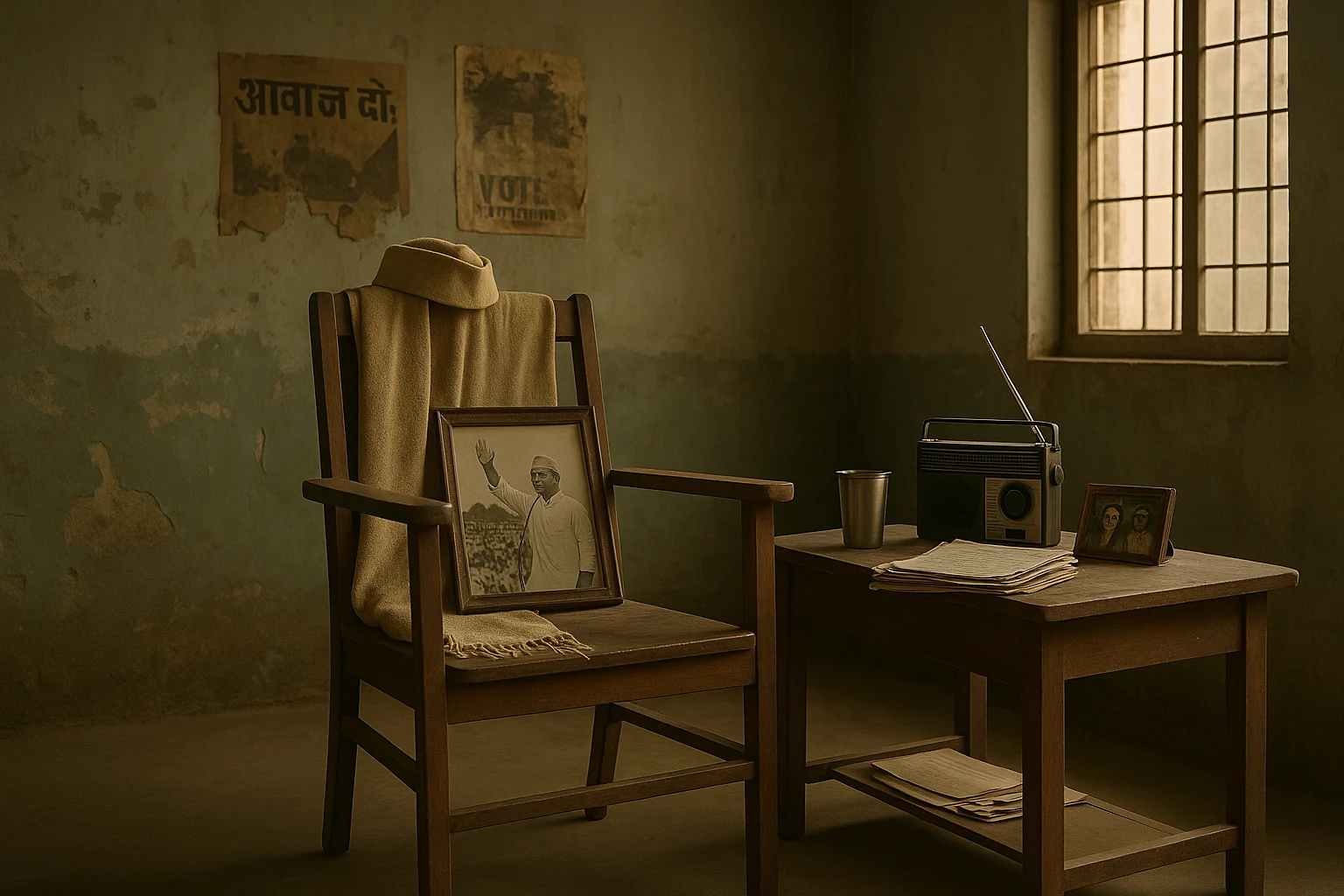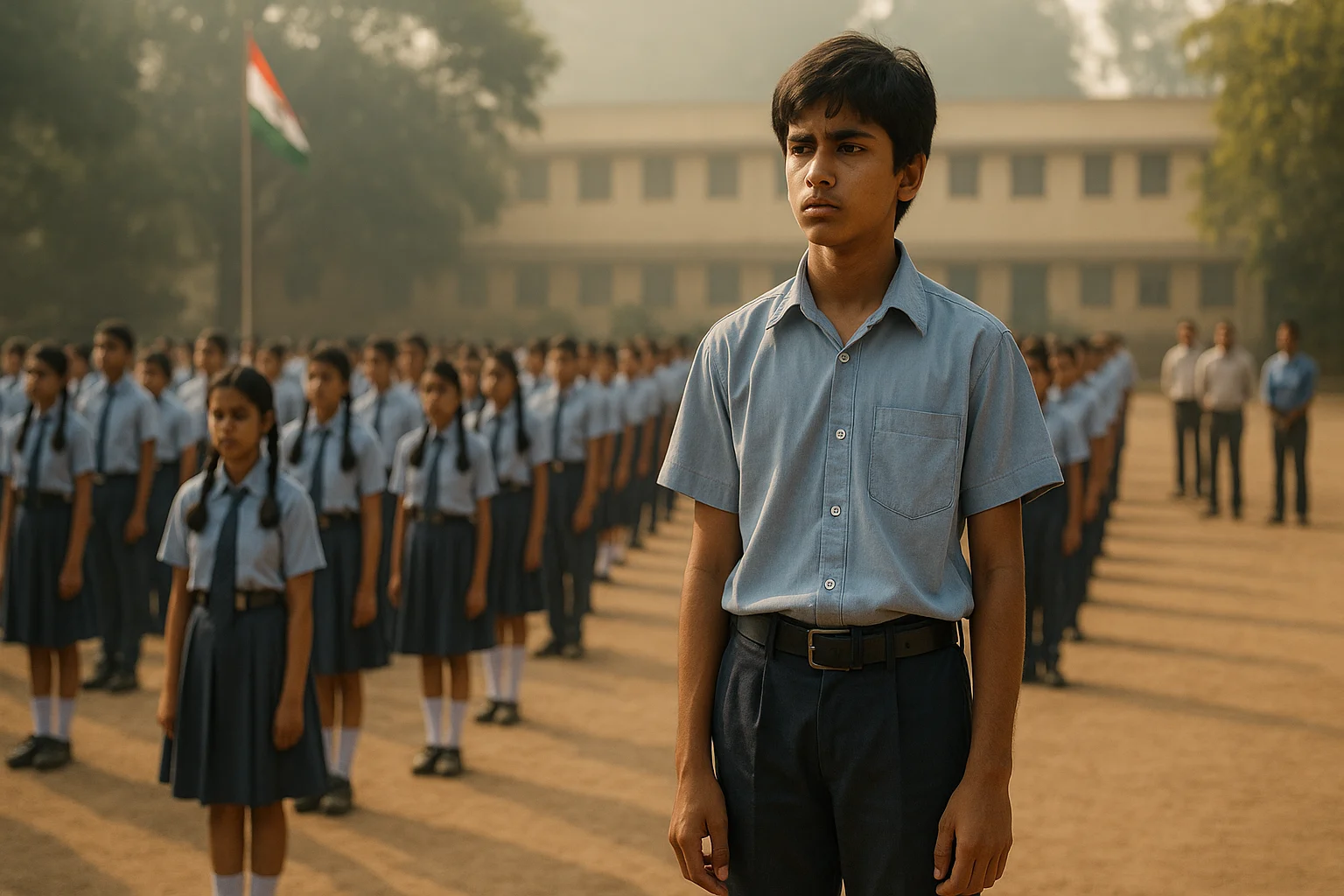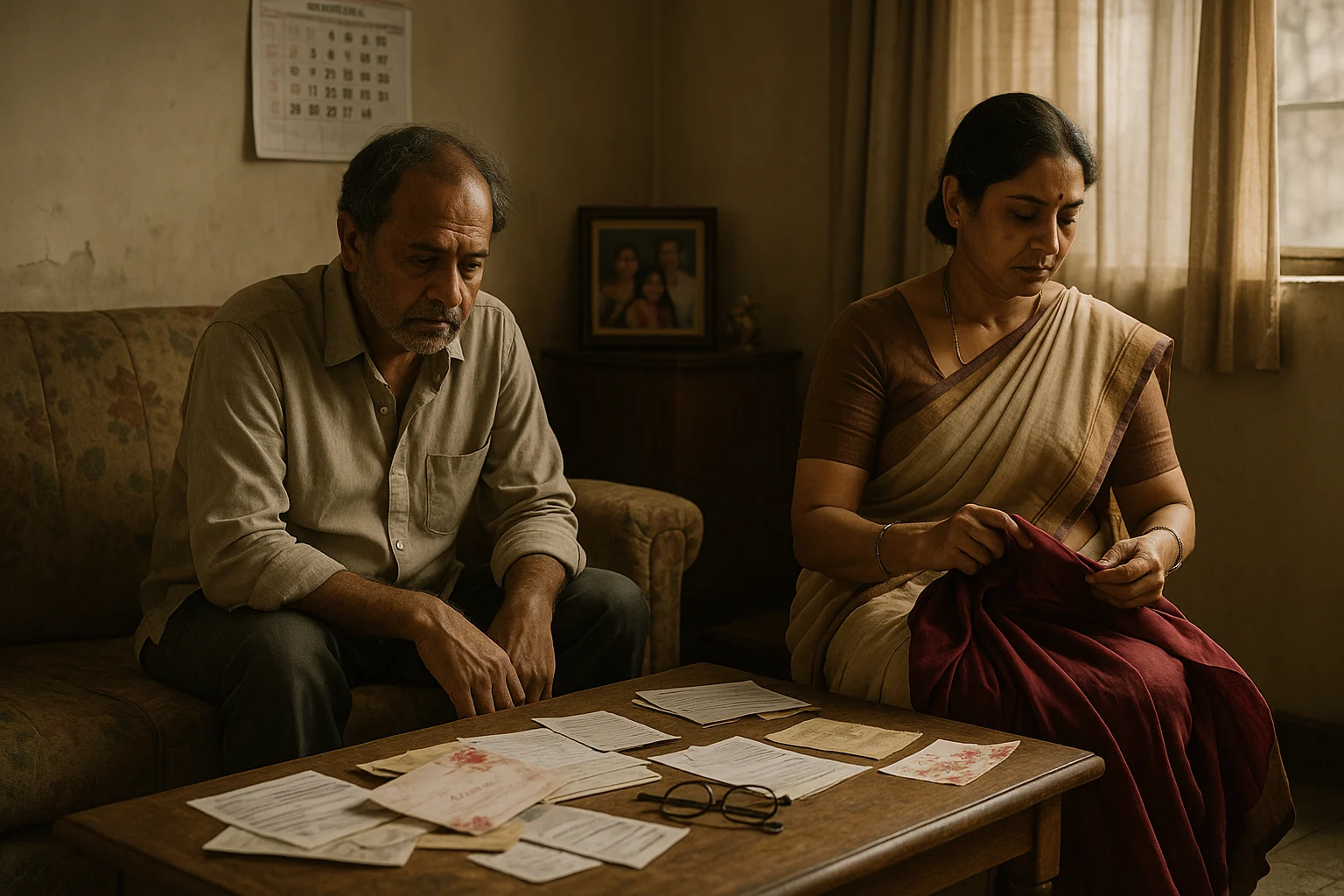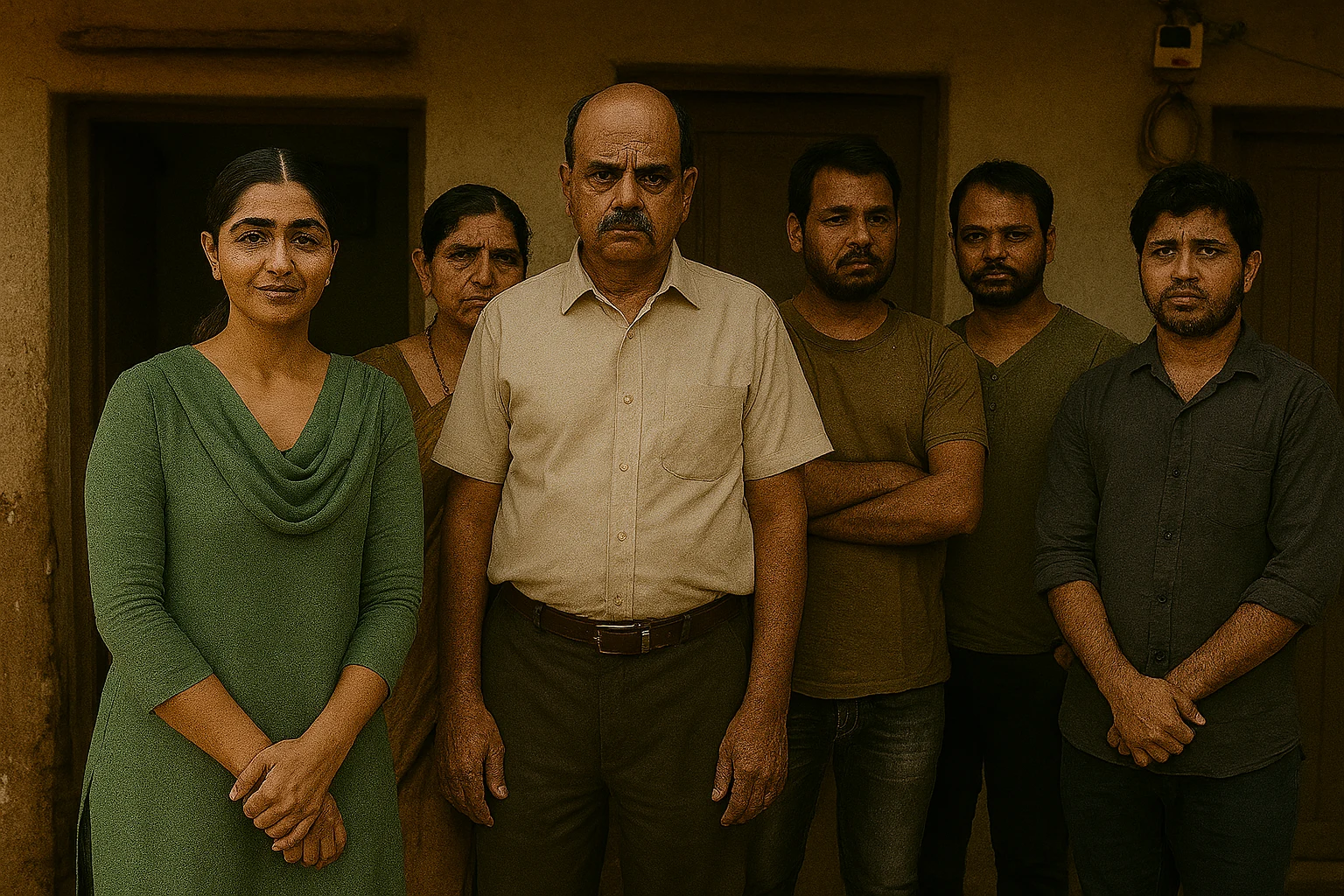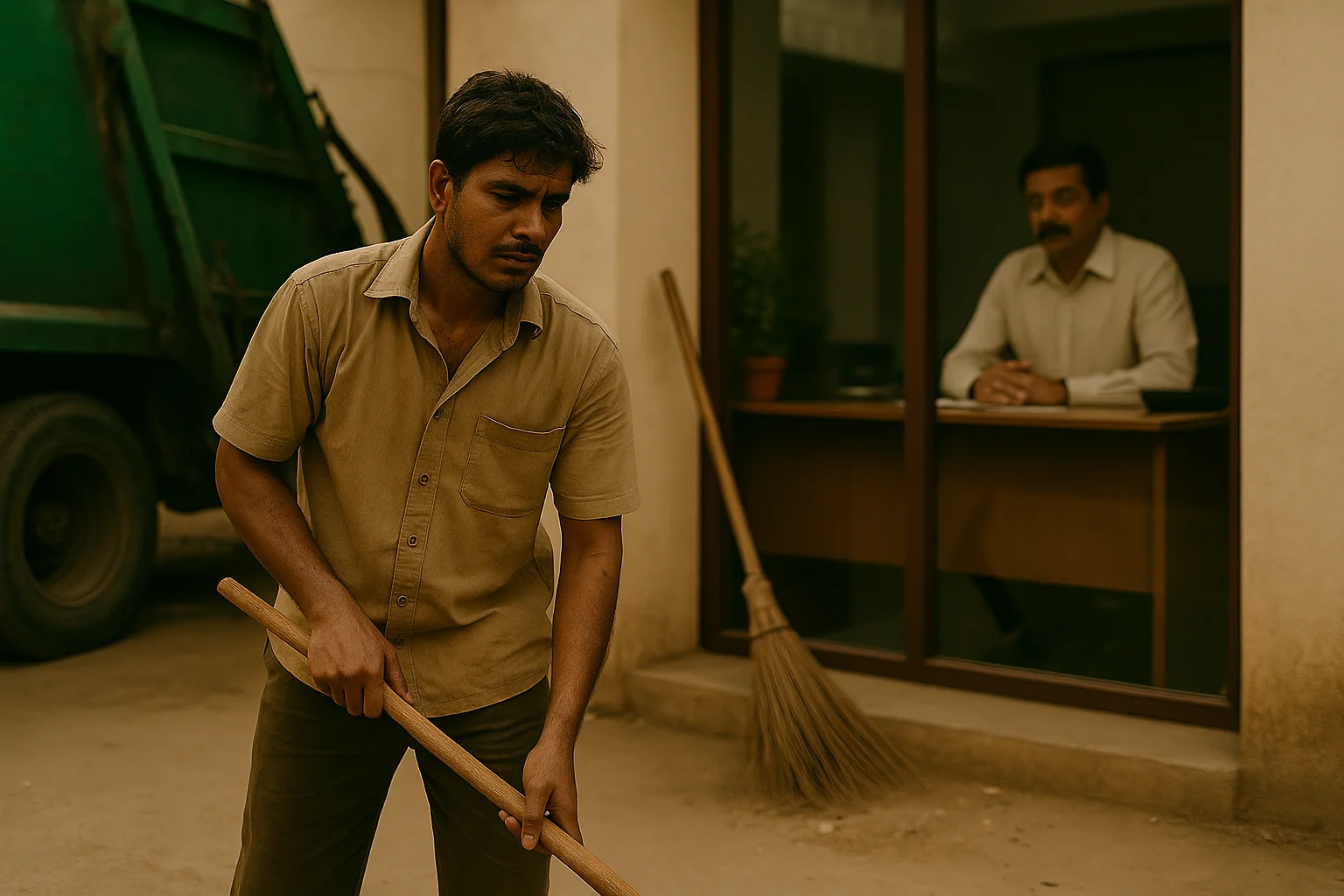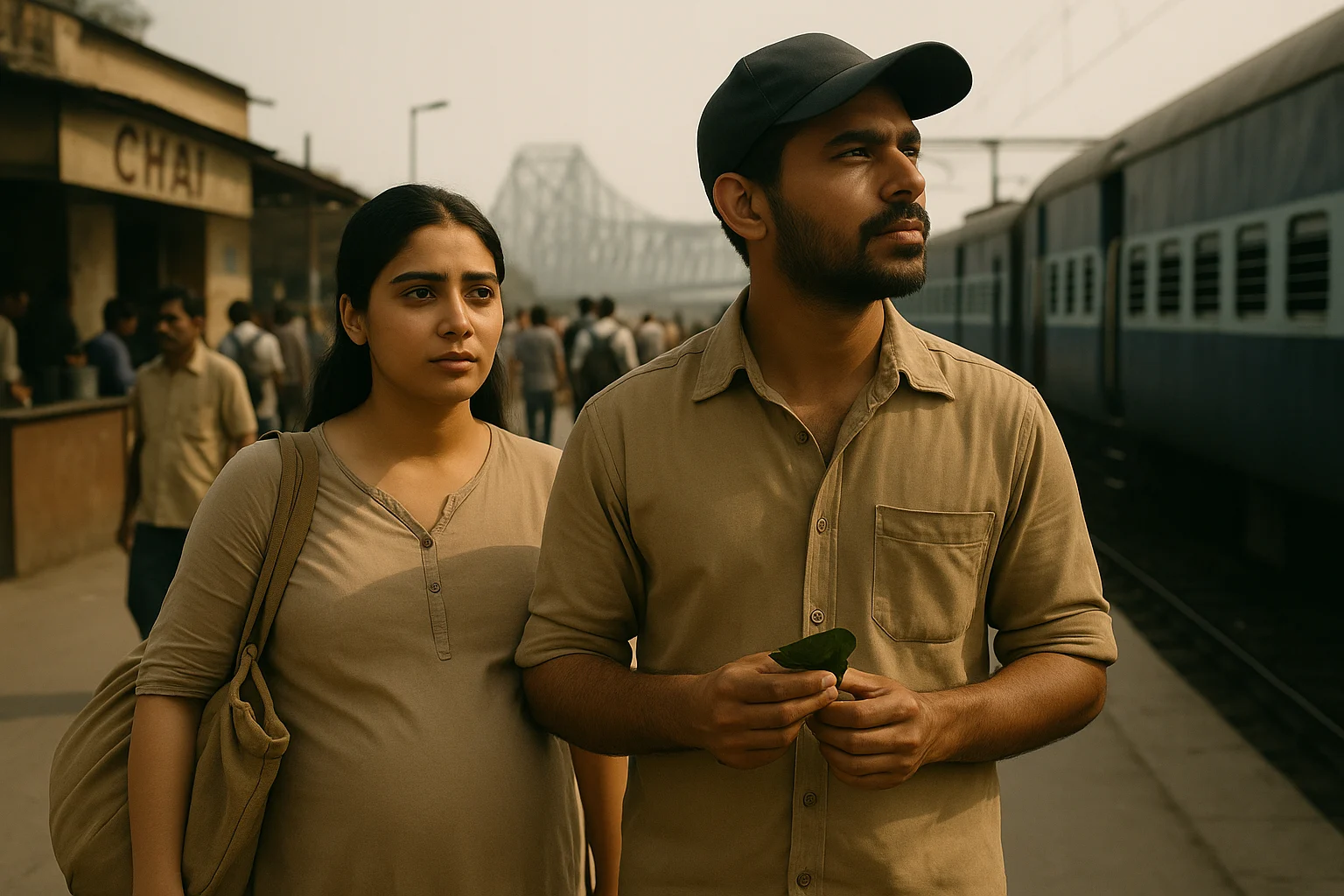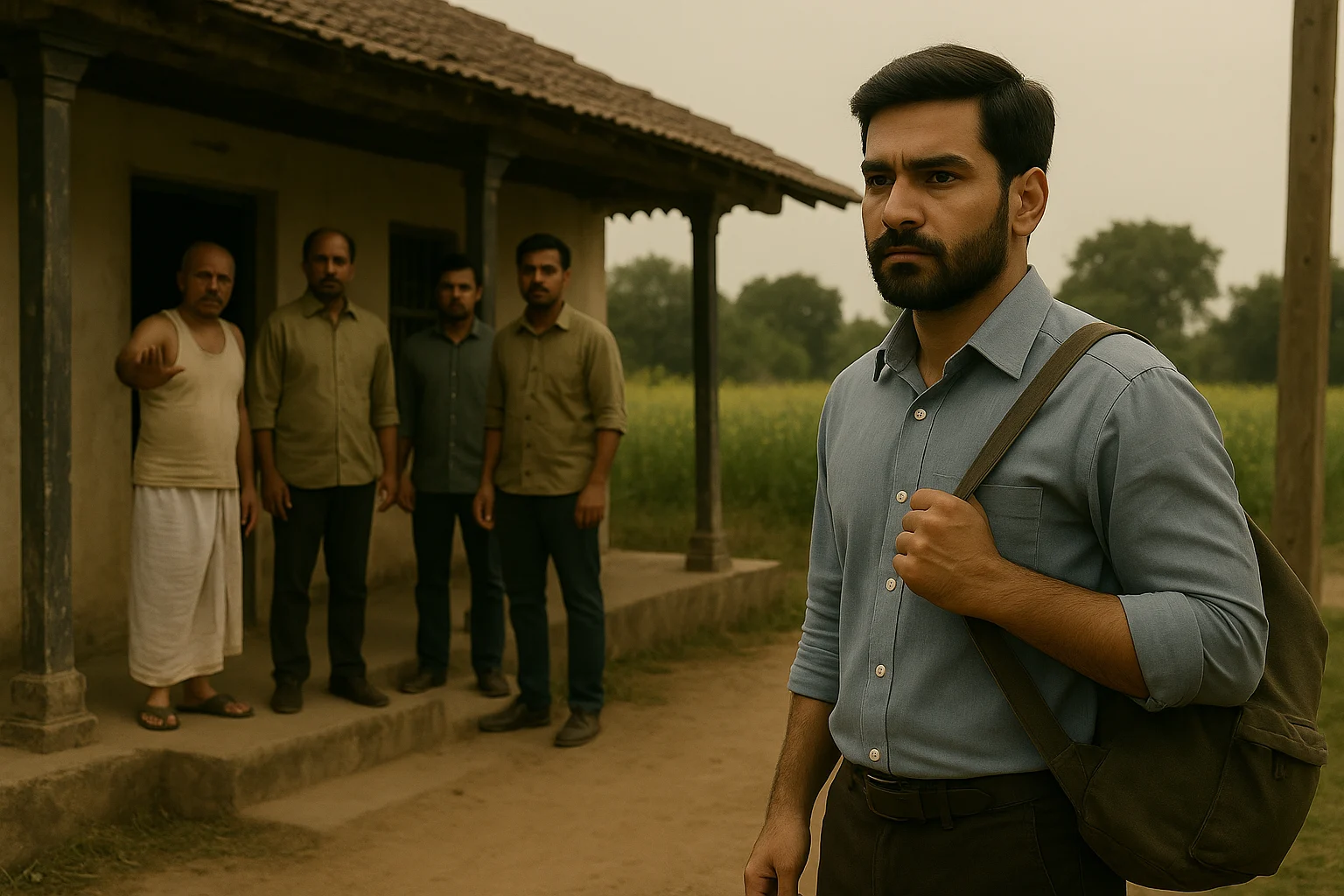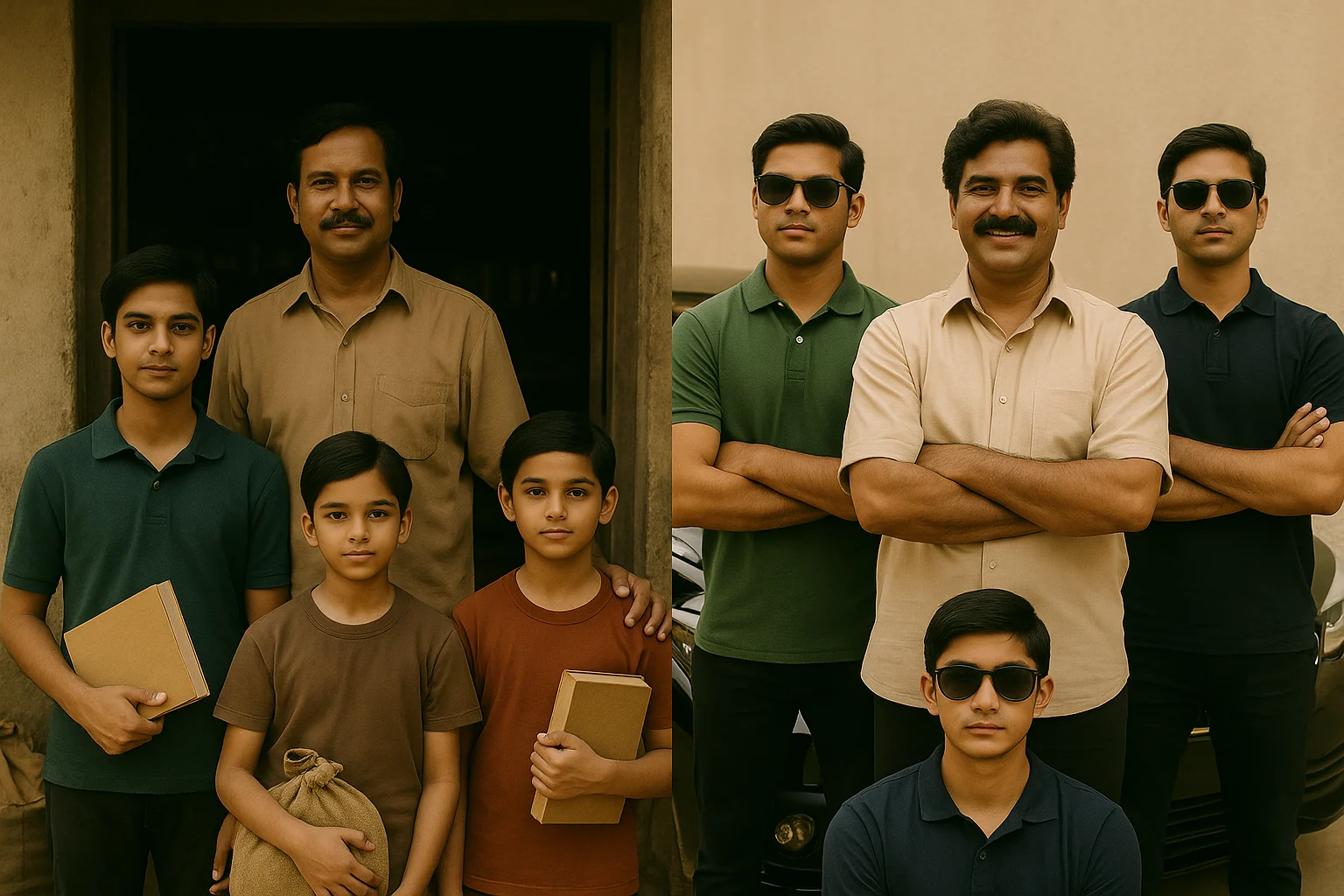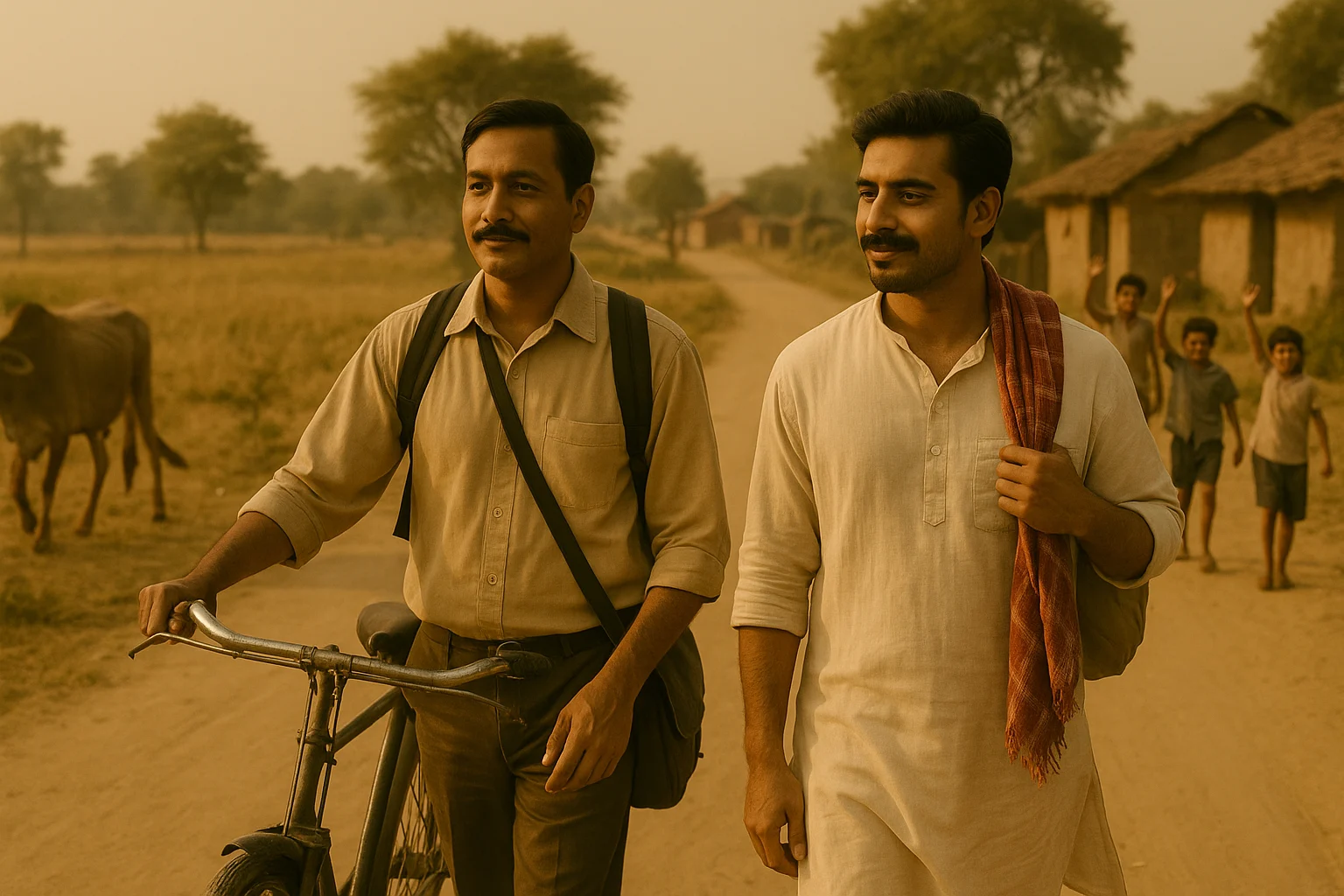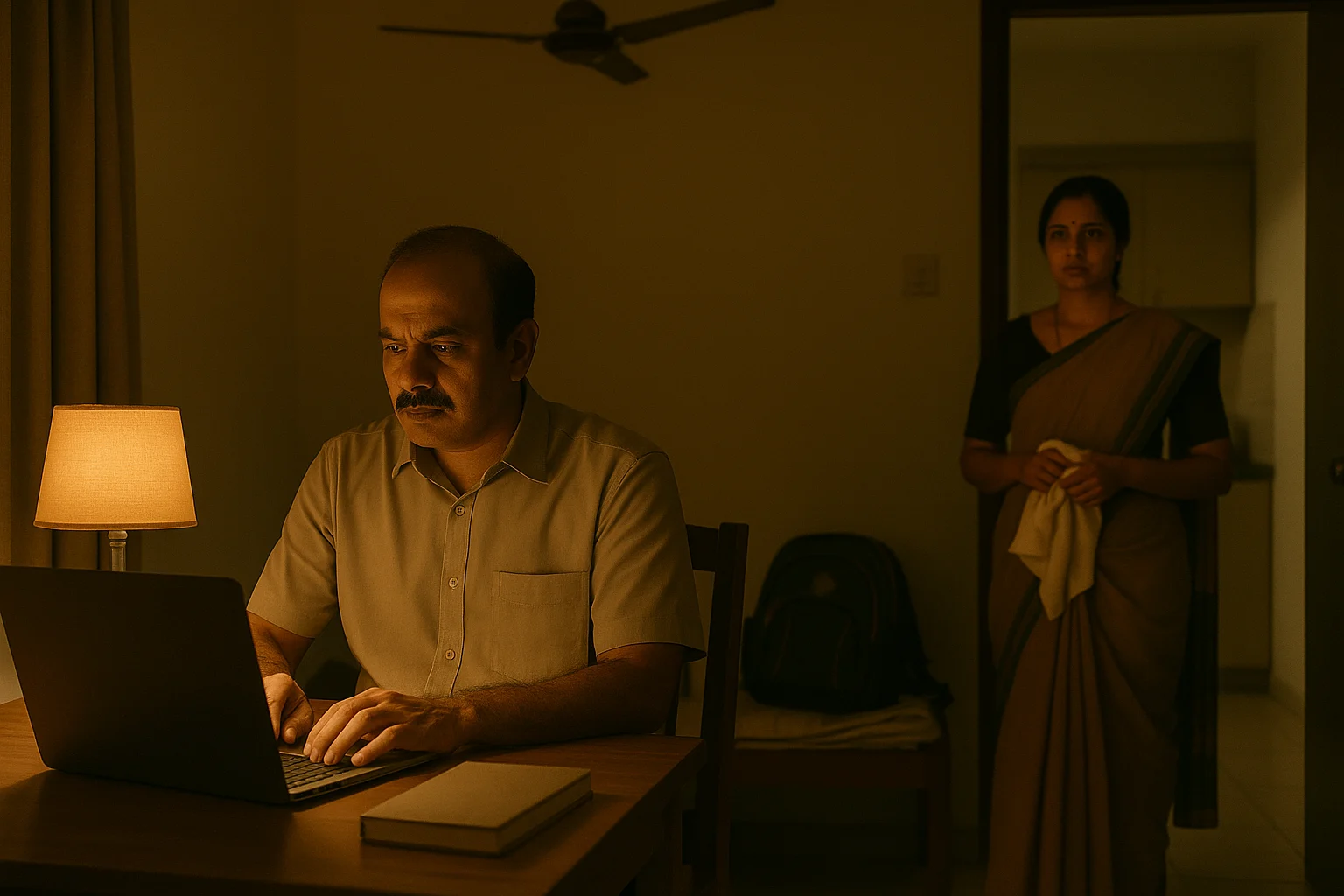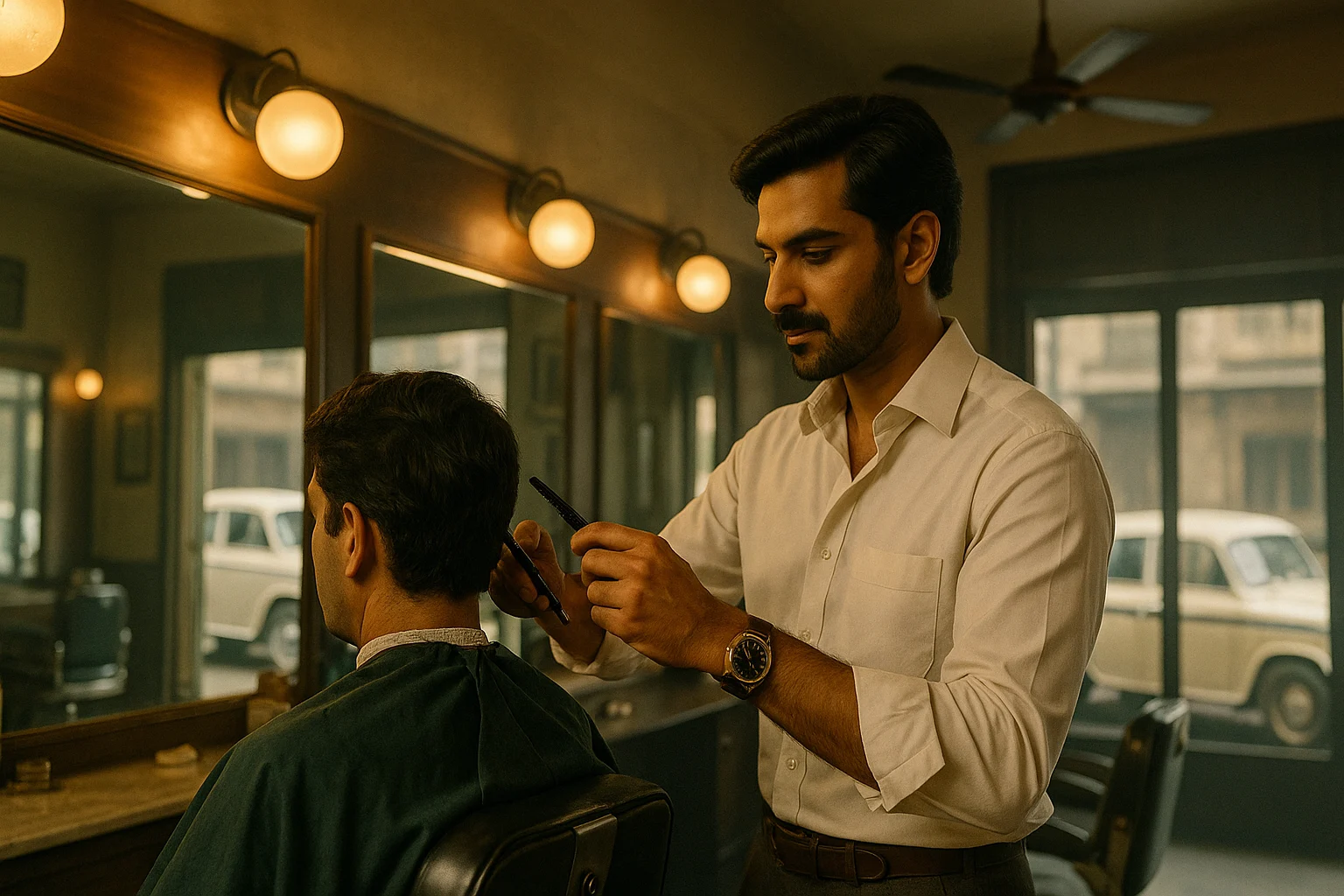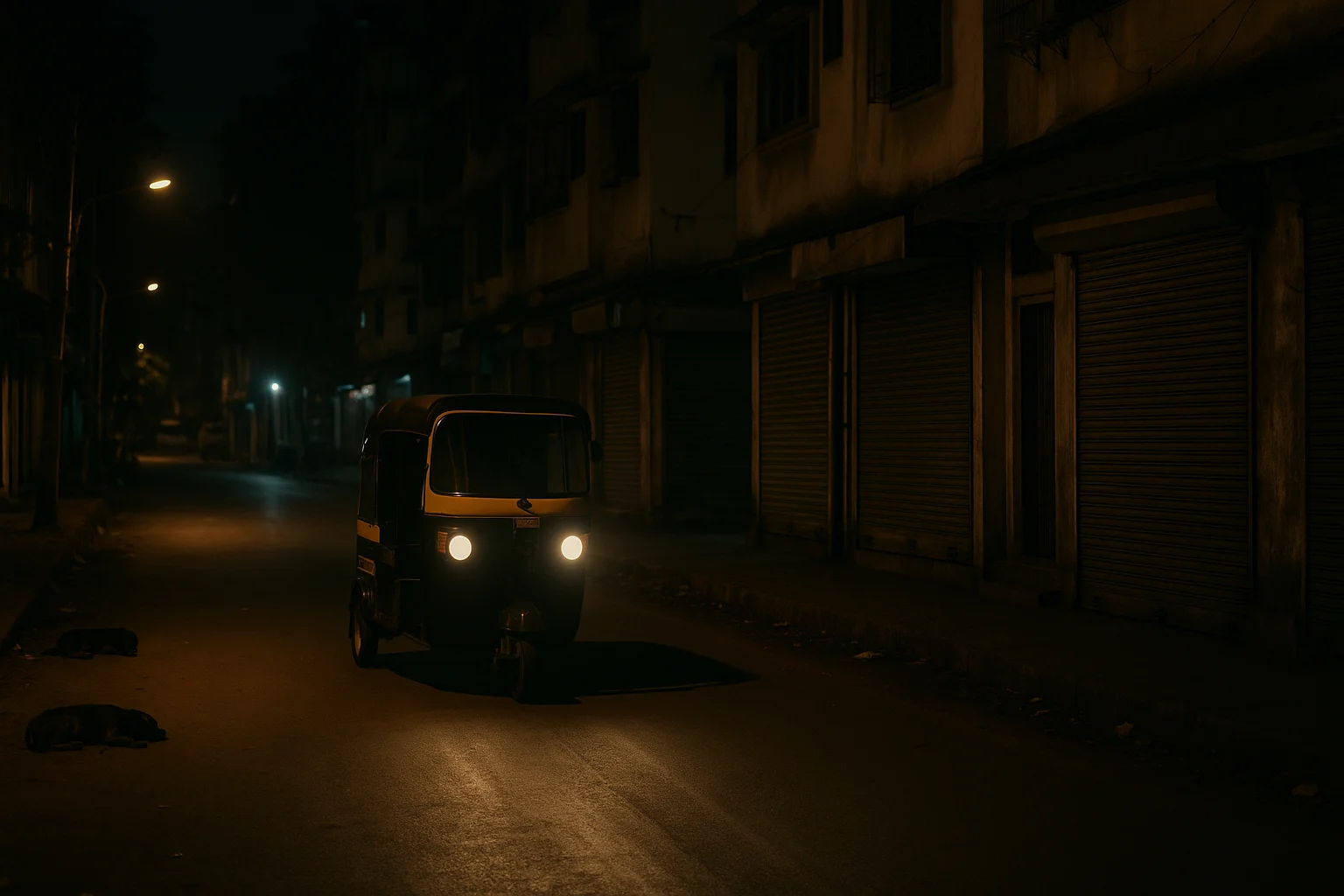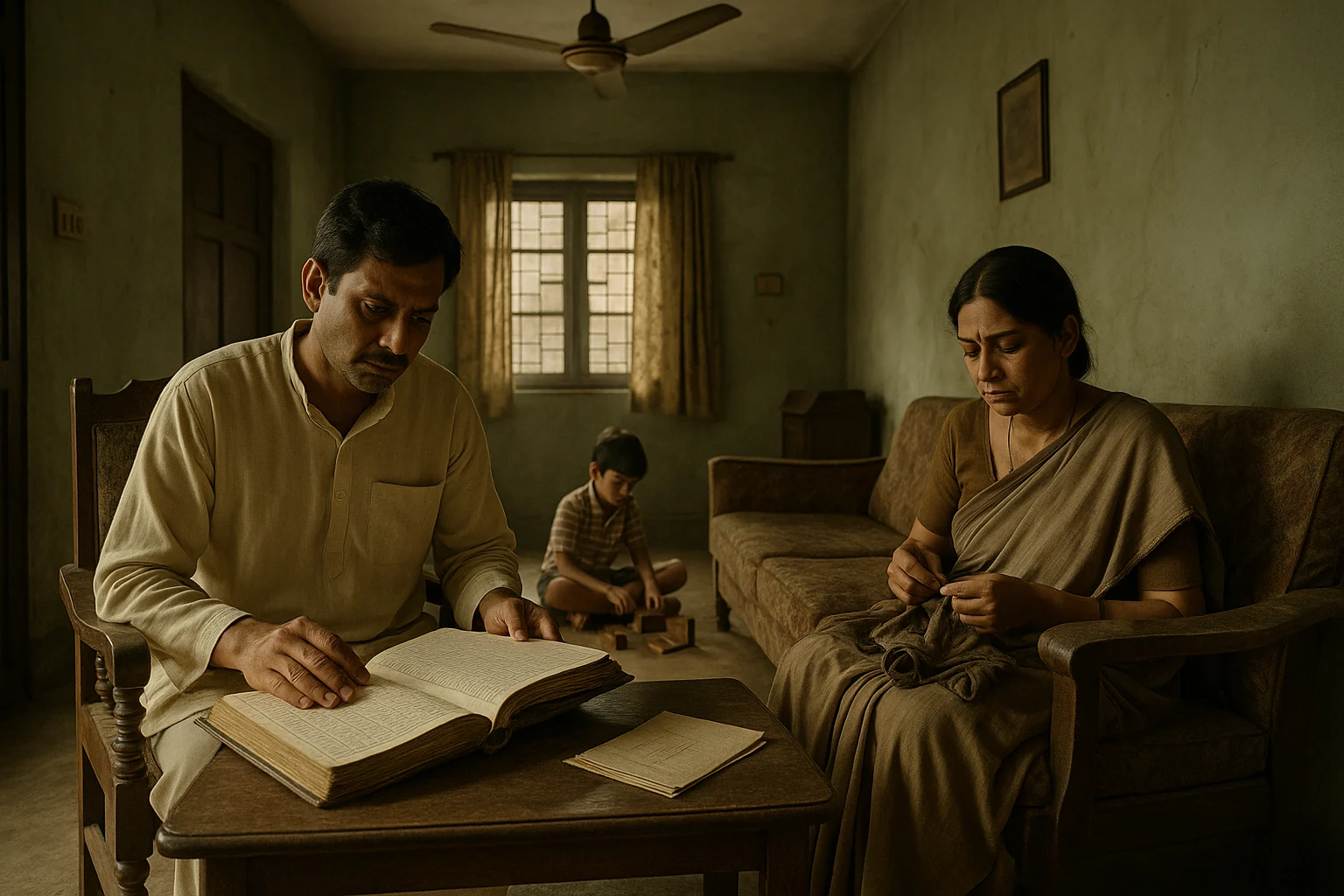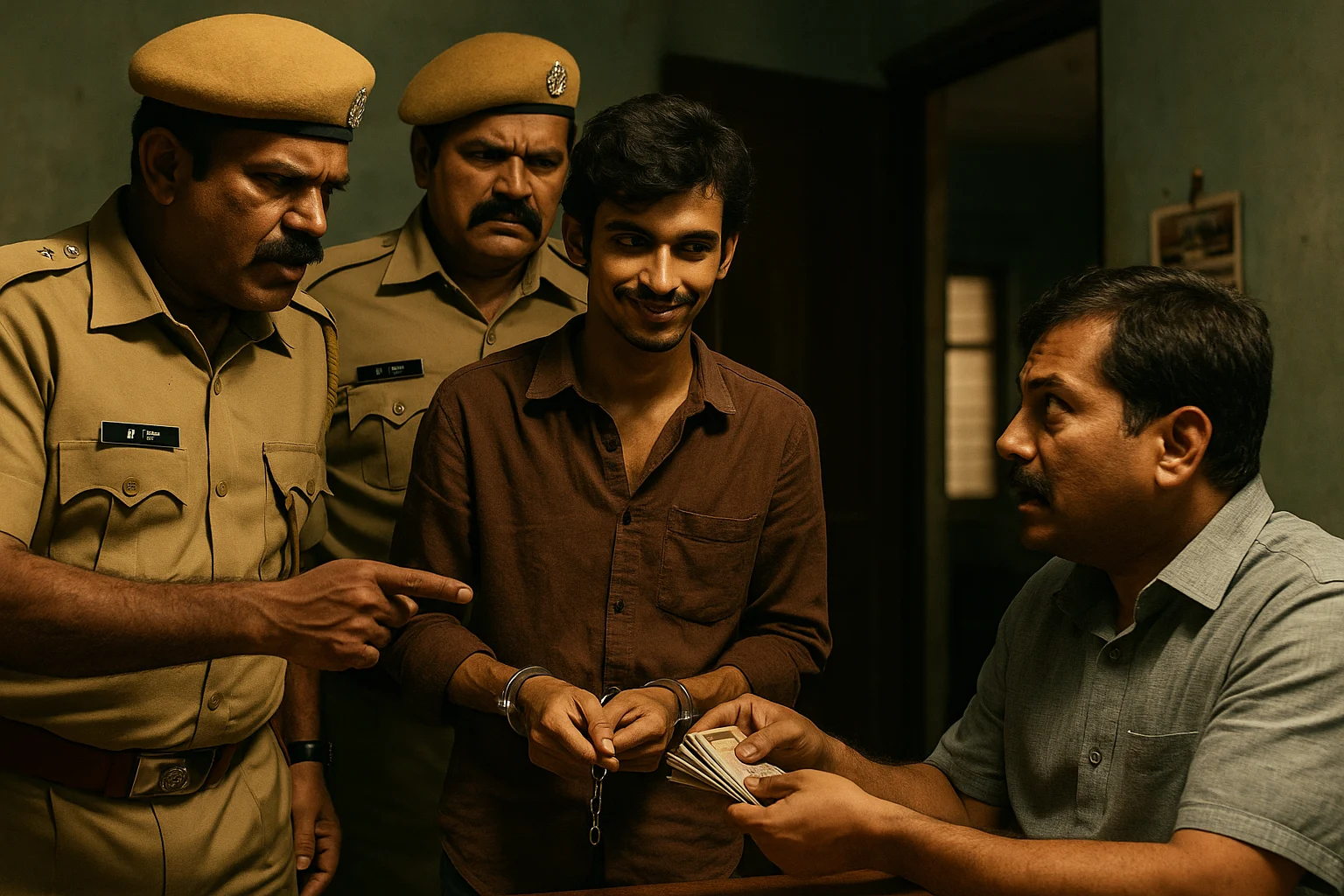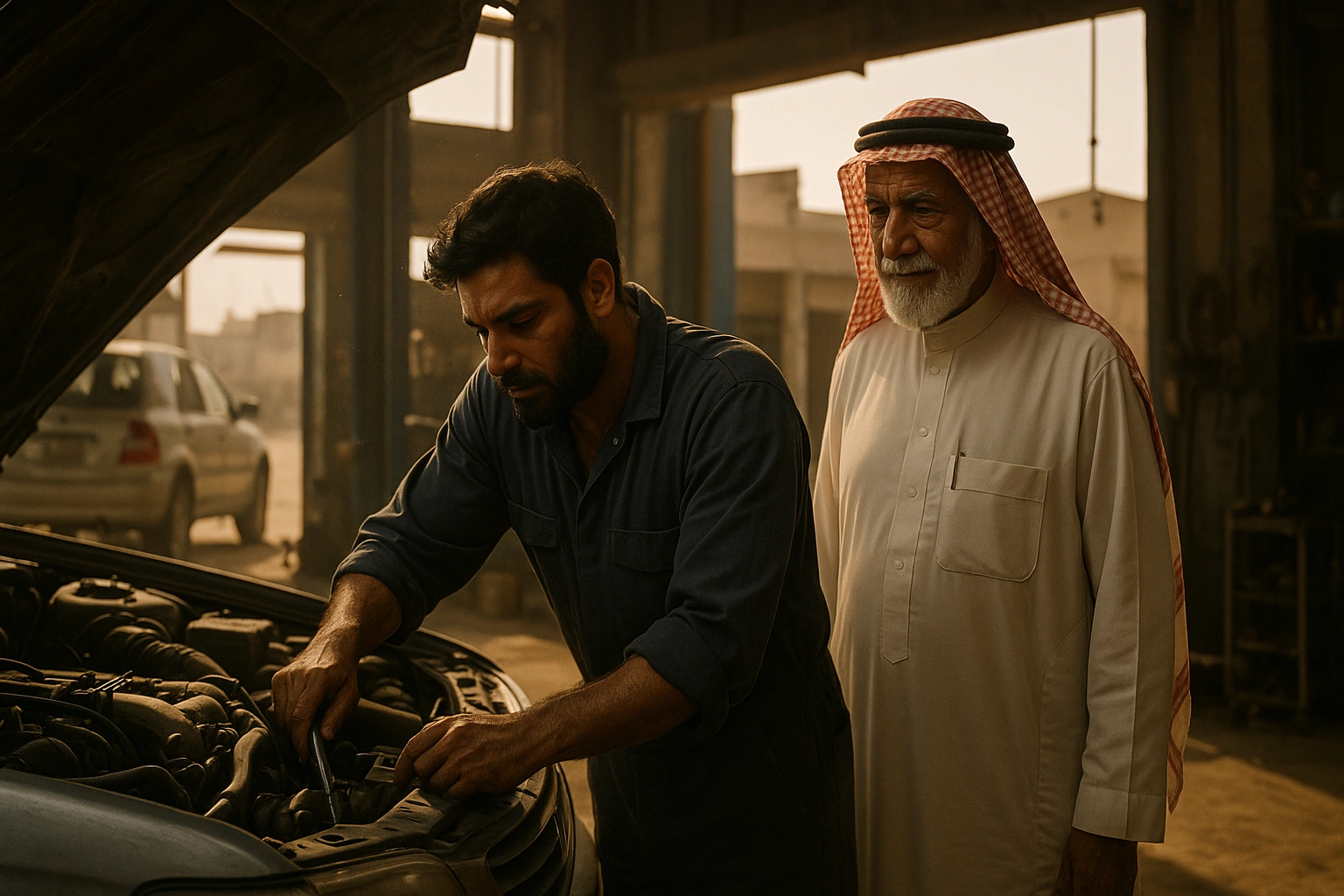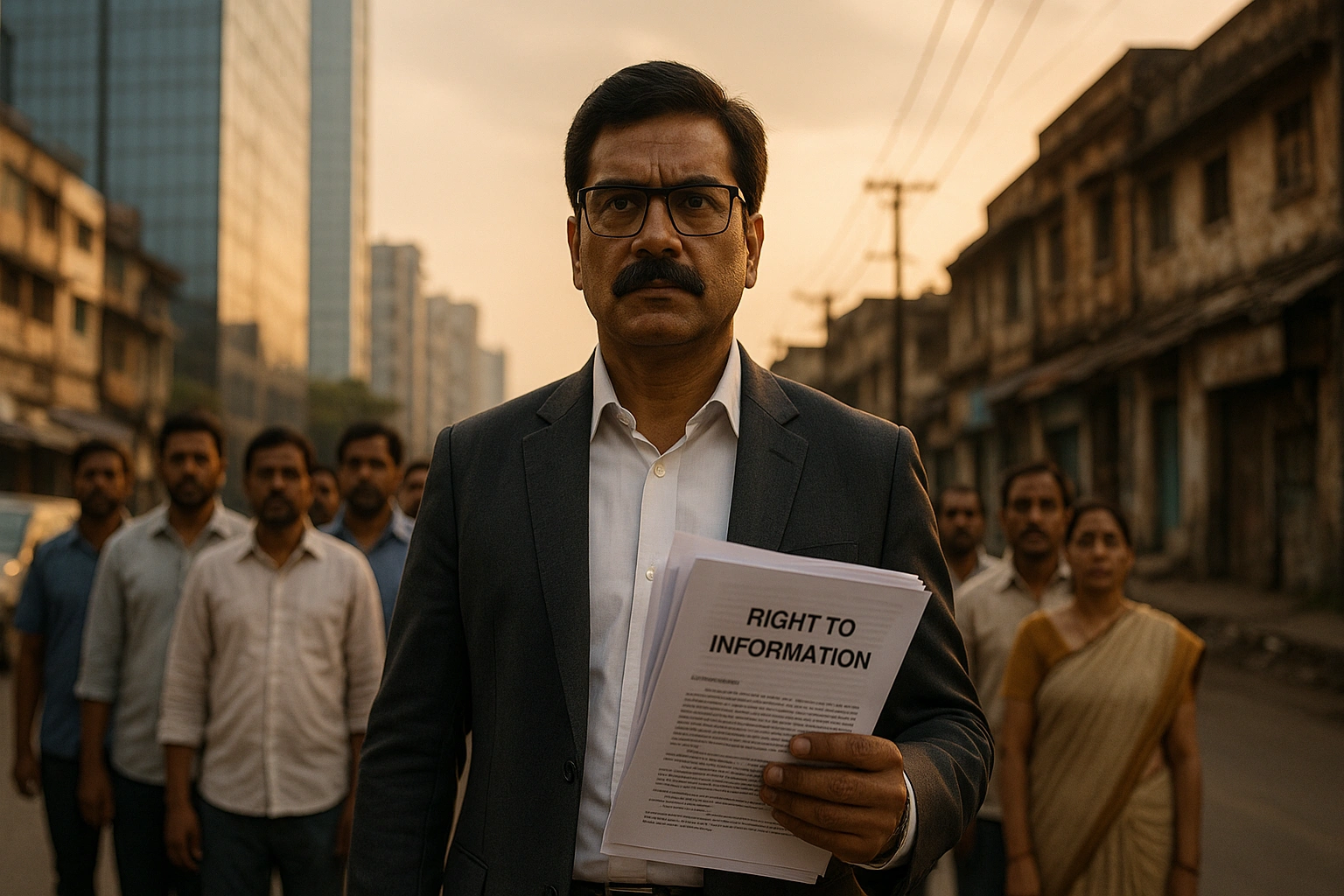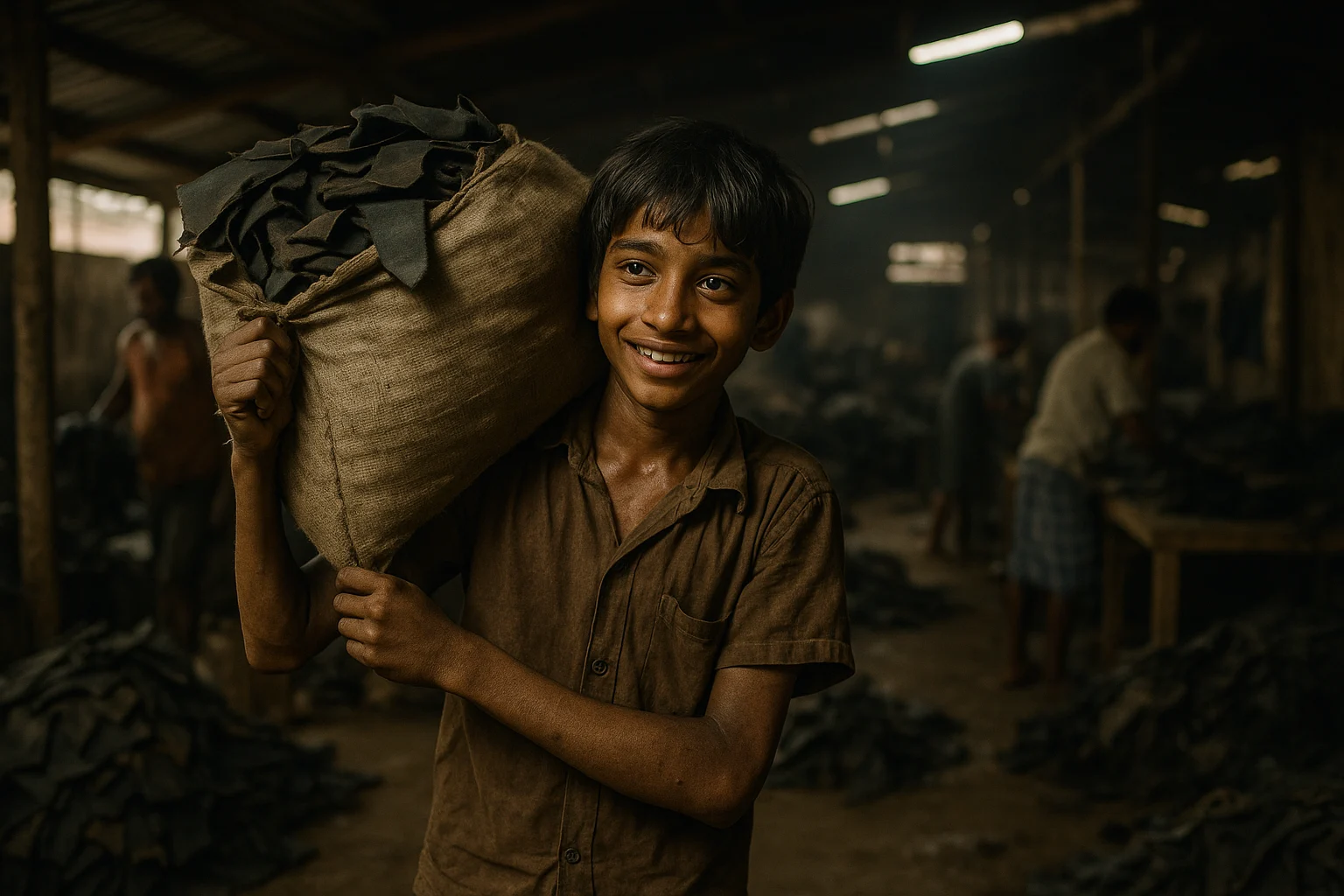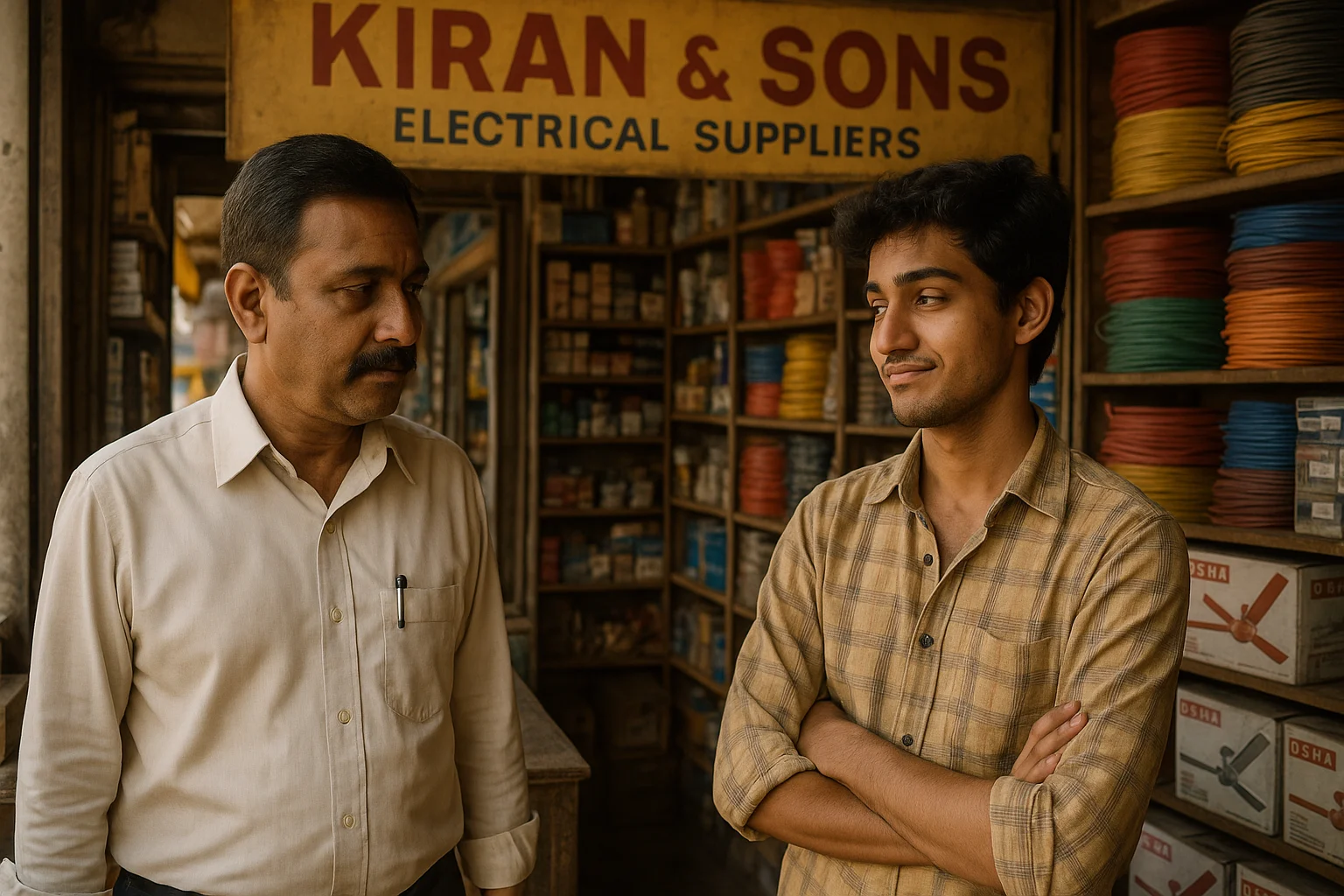The Story
1. The Beginning in Dhanbad
Dhanbad, the coal capital of India, is an industrial town known for its mines and smokestacks. Amidst the black dust and endless shifts of miners, a young boy was born into a struggling family. His father, a daily-wage worker, held the household together with sweat and labor, while his mother balanced the small kitchen with meager earnings.
Tragedy struck early—his mother passed away when he was still in primary school. By the time he turned eighteen, his father too had breathed his last, leaving behind not just grief but also a permanent void. He had three elder brothers, all busy with their own families and struggles, who neither offered a shoulder nor support. To them, he was just another burden they had long discarded. He left Dhanbad quietly, without a backward glance, and boarded a train to Kolkata. His only luggage: a small cloth bag, an old shirt, and a head filled with uncertainty.

2. First Steps in Kolkata
Kolkata was overwhelming—its trams, yellow taxis, narrow lanes filled with tea stalls, and the mix of chaos and charm unsettled him. For days, he stayed with a friend from Dhanbad who worked as a housekeeper at a guest house. That friend got him a job in a small electrical repair shop near Sealdah.
He was shy, quiet, and obedient. He spoke little and worked long hours. His hands became used to soldering irons, tangled wires, and the sharp smell of burnt insulation. Customers liked him for his calmness. His boss, a strict but fair man, appreciated his diligence. Within two years, he got a raise and some responsibility. For the first time in life, he could eat decently, wear pressed shirts, and even buy an old bicycle.
But prosperity, however small, planted a dangerous seed in him.
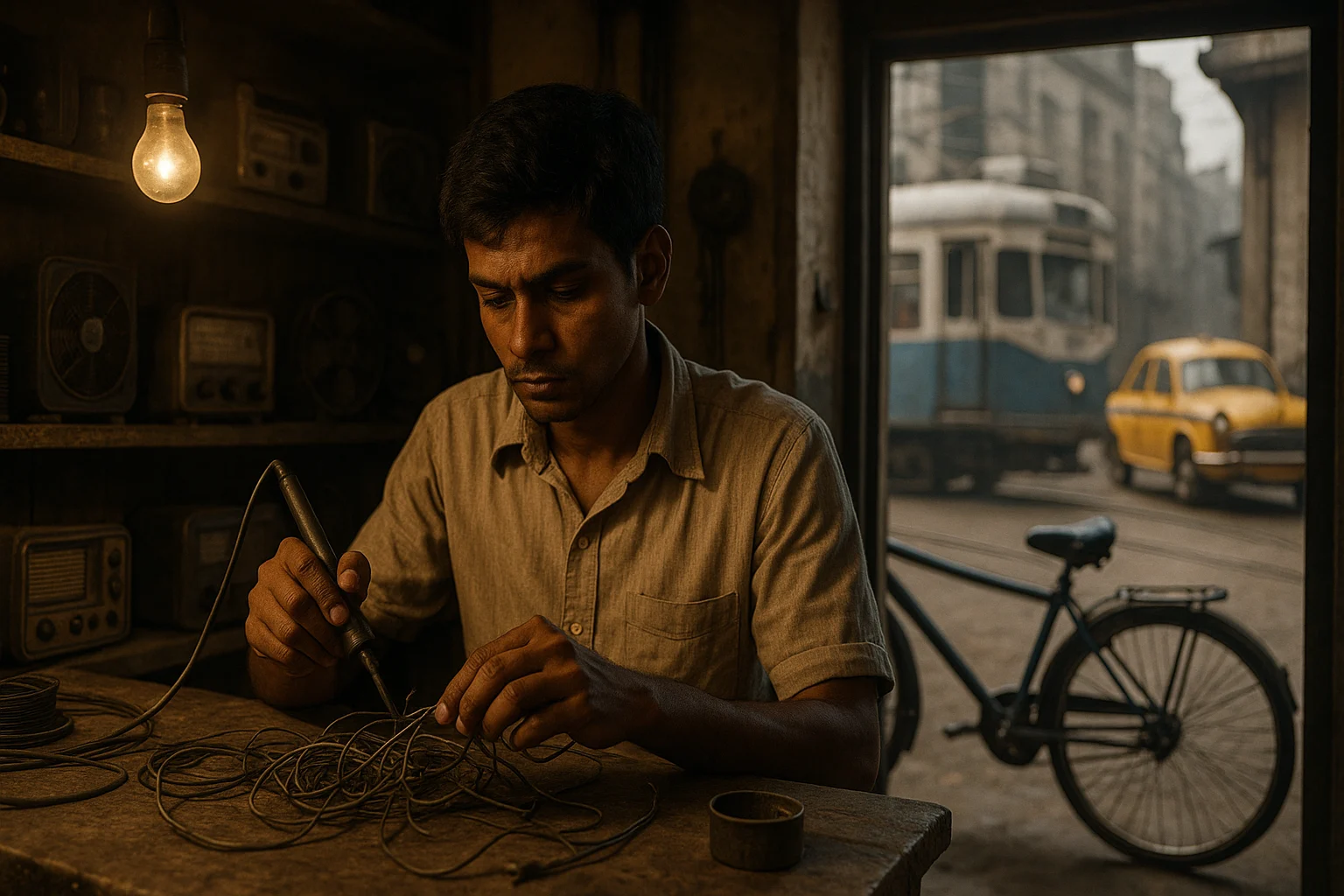
3. The Transformation
The boy who was once humble began to change. In the evenings, when the neighborhood workers gathered to chat over tea and puffed rice, he would join in. At first, he listened. Then he started sharing exaggerated stories about himself.
He claimed he was the youngest son of a wealthy Dhanbad businessman. His father, he said, owned coal trucks and acres of land. His brothers had stolen the wealth, leaving him nothing. He painted himself as a victim of betrayal, a prince turned pauper.
The stories grew bolder with each telling. Sometimes, he claimed his father once hosted ministers and politicians. Sometimes, he said he had studied in the best English schools before tragedy struck. He loved the attention, the awe in the eyes of those who didn’t know better.
When someone asked, “If you were so rich, why are you fixing wires in this shop?”
He would sigh, pause dramatically, and answer, “Circumstances, my friend. Life has its cruel turns. But remember, blood remains royal even in rags.”
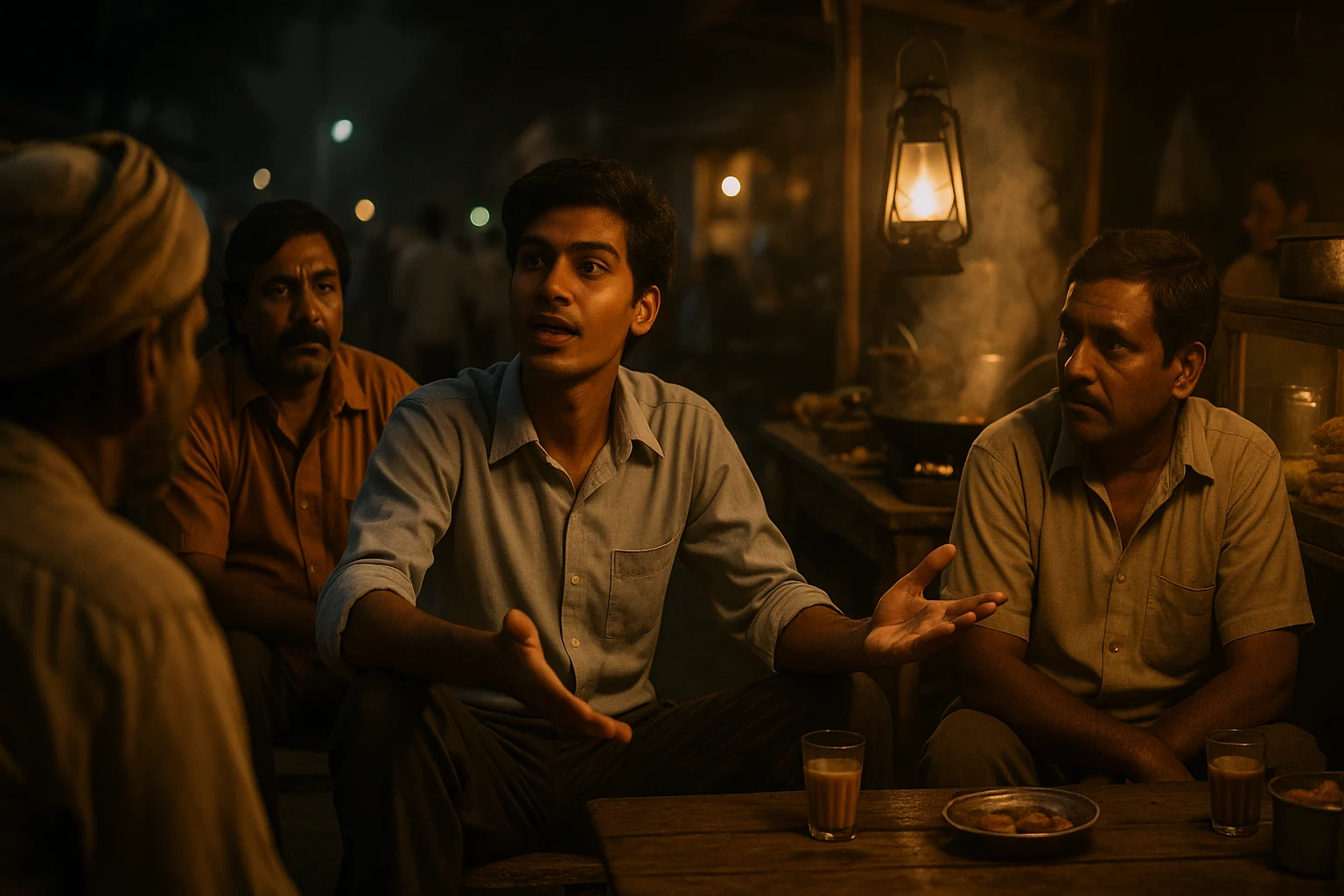
4. The Bluff Deepens
A few neighbors believed him. Some respected him more, imagining him as an unfortunate heir robbed of fortune. To keep their admiration alive, he repeated his stories, adding new twists—coal contracts worth crores, properties in Ranchi, even a claim that he once rode in imported cars.
This gave birth to arrogance. He would dominate every discussion, even those about cricket, politics, or cinema. If someone said they liked Amitabh Bachchan, he would say his father once dined with Raj Kapoor. If a neighbor discussed savings, he would laugh, saying in his family, saving was never needed because wealth was abundant.
He no longer worked with the same passion. Instead of sharpening his skill, he sharpened his tongue. His co-workers noticed the change, but they stayed silent. After all, life had taught them to value actions over words.
5. Others Move Ahead
Years passed. The neighborhood boys who once worked alongside him began to grow. Some opened small repair shops of their own. Others saved money and started trading in wholesale goods. A few even became successful businessmen in Burrabazar and Howrah.
They bought scooters, then motorcycles, then small cars. They moved from rented rooms to flats. Their wives wore gold bangles, their children studied in private schools.
Meanwhile, the boy from Dhanbad remained where he was—telling stories, polishing his image, puffing his chest in evening gatherings. But time is a mirror that reveals the truth. Slowly, people stopped listening. They had their own success stories to tell now—real ones, not fabricated.
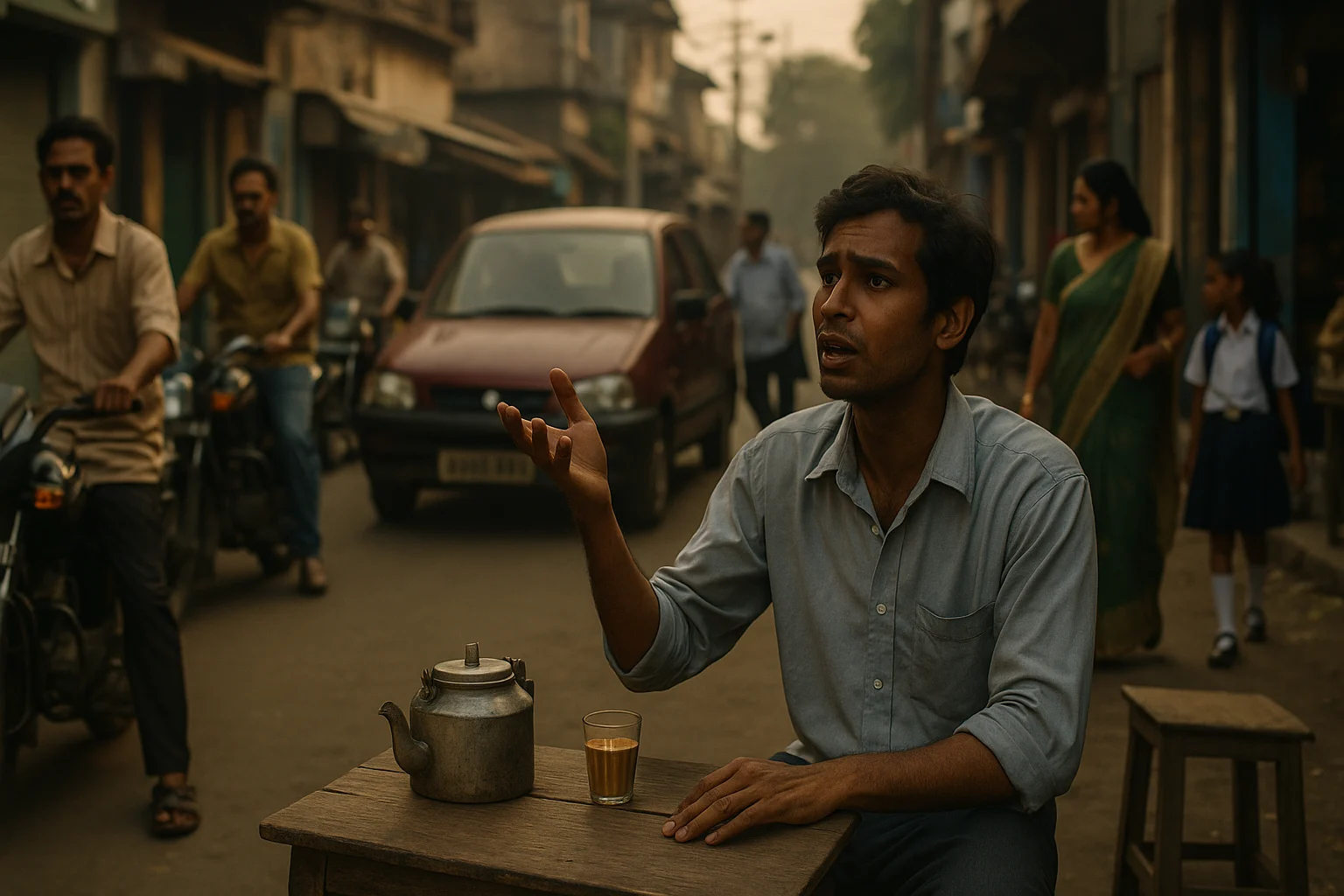
6. The Fall
Fate struck hard when the electrical shop where he worked shut down. His boss fell ill, debts piled up, and one day, the shutter went down forever. He, now in his late thirties, was unemployed with no skill to stand on his own.
He tried to find new jobs, but his arrogance and lost years stood in the way. Employers preferred younger, hungrier boys. His former colleagues, now businessmen, looked at him with pity. Some lent him small amounts when he begged, but they mocked him behind his back.
His old bluffs turned into shame. The same neighbors who once heard his tall tales now whispered, “See the so-called prince of Dhanbad. Can’t even pay rent.”
One evening, he was found sitting at the tea stall, head lowered, asking for five rupees. For a man who once claimed to have crores, it was the final humiliation.
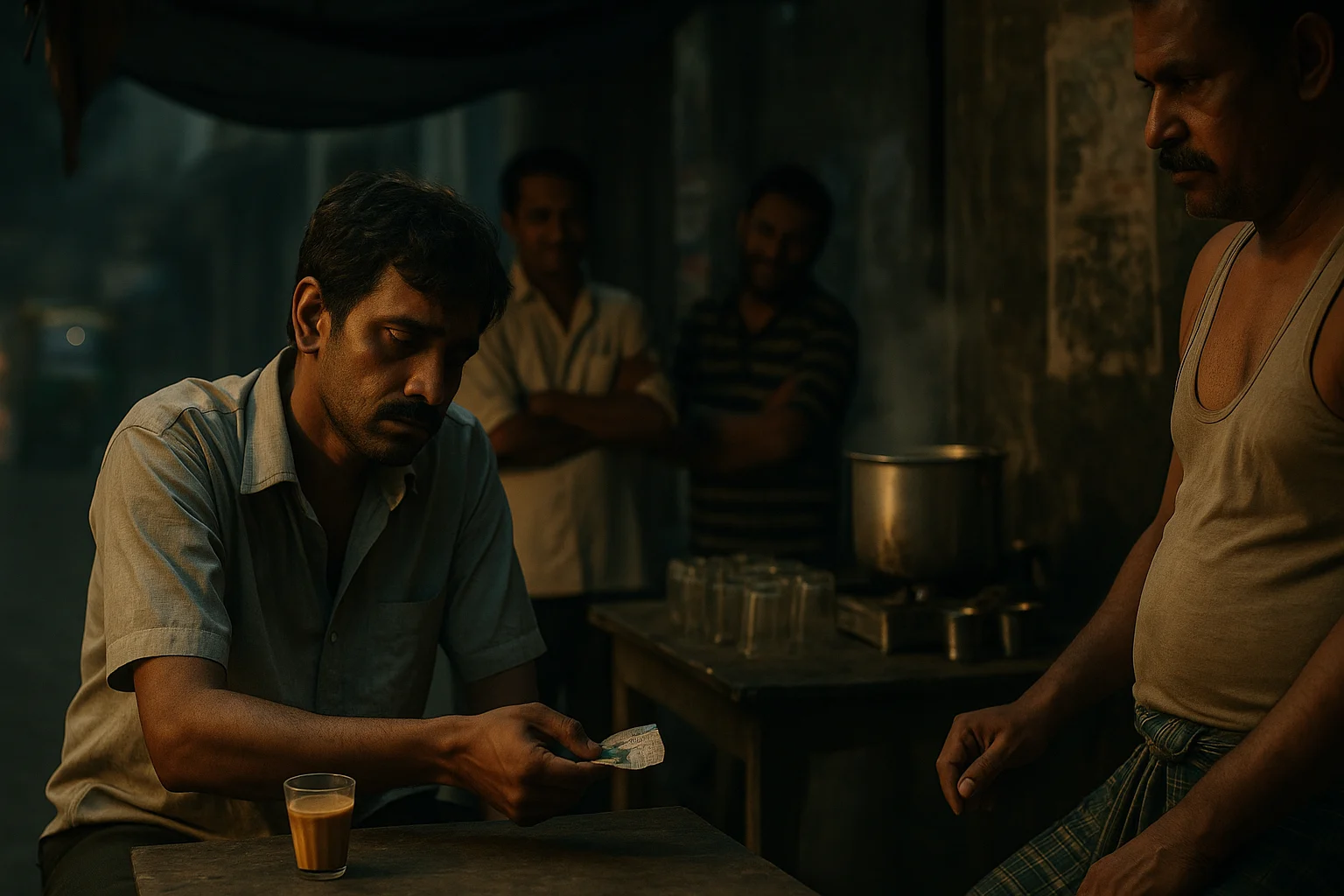
7. The Disappearance
Embarrassed, he packed a small bag and left Kolkata. He didn’t tell anyone where he was going. Some said he returned to Dhanbad. Some said he went to Delhi or Mumbai. Some believed he drank himself to death on a railway platform.
No one truly knows. What everyone knows is this: the boy who wasted his life bluffing, pretending, and dominating ended up forgotten.
Perhaps he learned his lesson in silence. Or perhaps he continued spinning stories elsewhere, to another set of unsuspecting ears.

Moral of the Story
A life built on lies and arrogance collapses, while those who stay humble and focus on growth rise with time.
Superiority without substance is nothing but empty air—it disappears the moment reality strikes.
Receive Stories and Articles in your Inbox!
We won’t send any promotional or spam emails.
